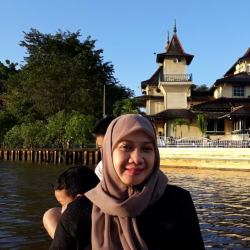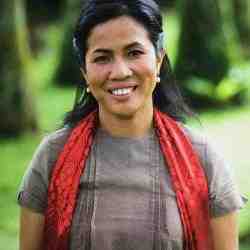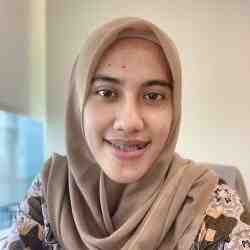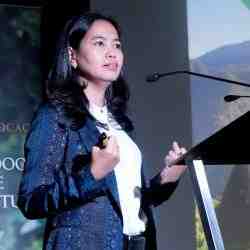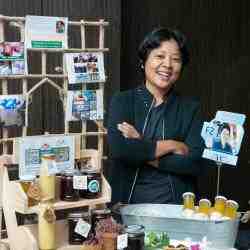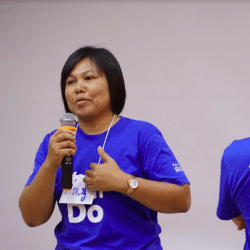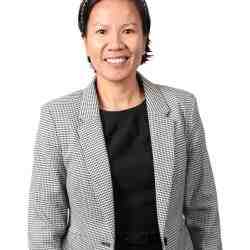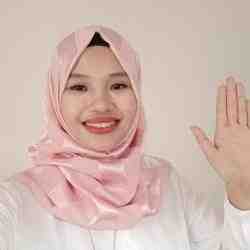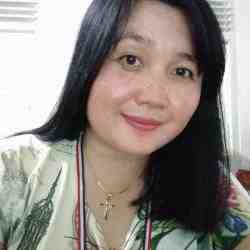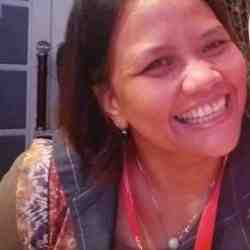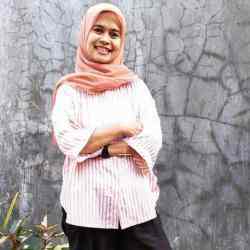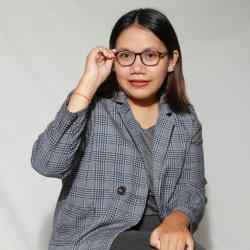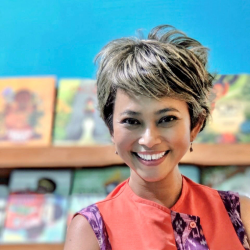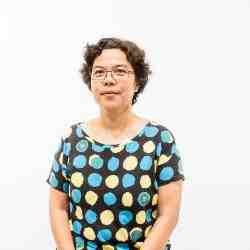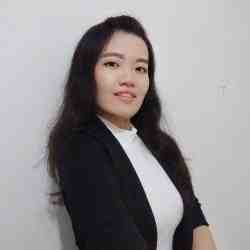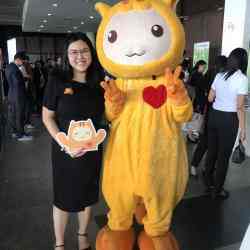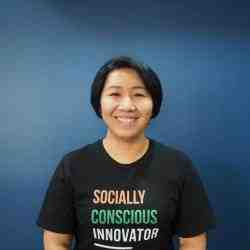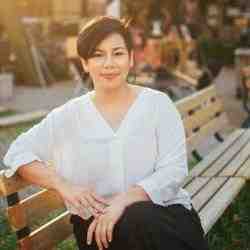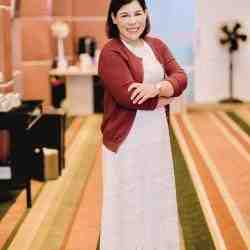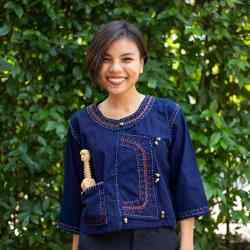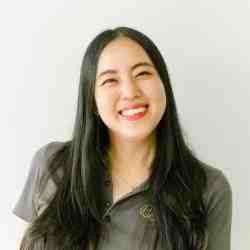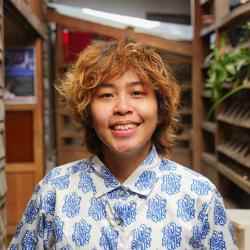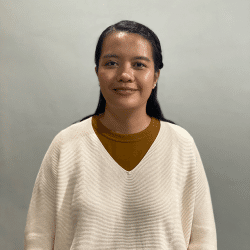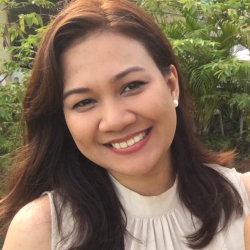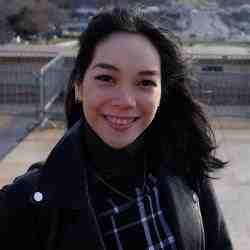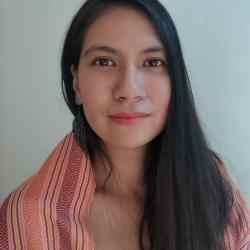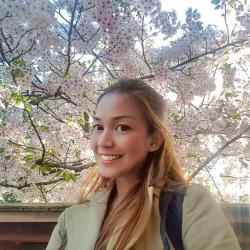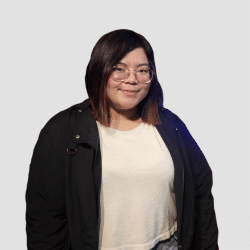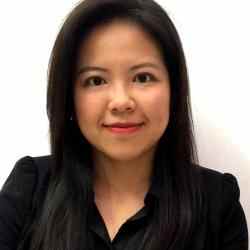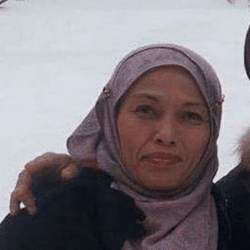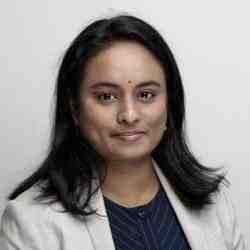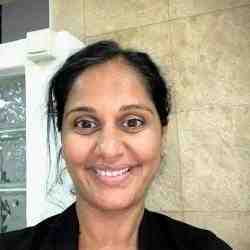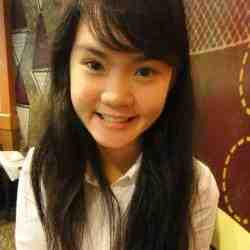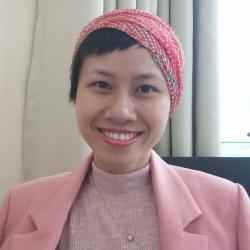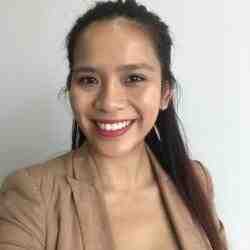Year 2 Cohort (2021)
DIWA is a three-month long online capacity building program made possible by our partnership with Deutsche Bank and S&P Global Foundation. DIWA takes Women Social Entrepreneurs (WSEs) on a learning journey that empowers them to create stronger impact, all while establishing a community of determined WSEs in ASEAN.
This online program aims to equip WSEs with frameworks, tools, and ideas that will enable them to lead teams effectively and create systemic impact. This program also aims to create a close-knit community of WSEs who are dedicated to being Changemakers in ASEAN. This community will provide support in creating difficult systemic change, allowing women to collaborate with and empower each other while taking on this journey.
Deutsche Bank Cohort- 10 WSEs
Laili Khairnur
Founder of Perkumpulan Gemawan
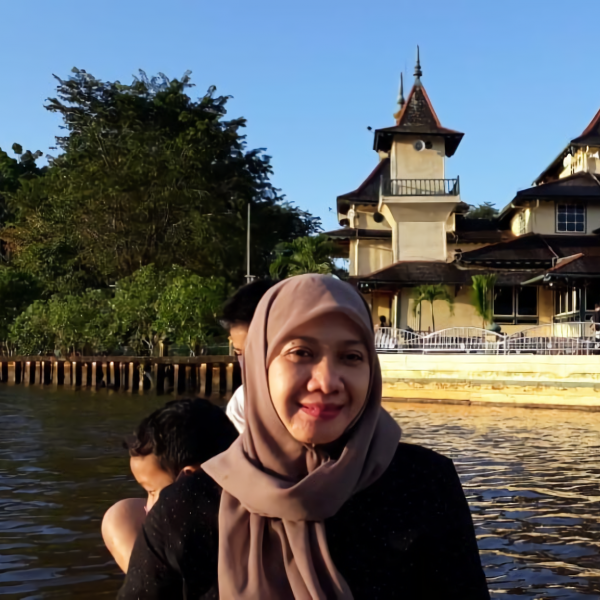
Laili Khairnur
Problem: Poverty that occurs due to minimal access and control over of forests and land, protection of livelihoods, inequality of forest and land tenure between communities and corporations (thus creating injustice, environmental damage, and social/human rights problems), gender issues, and issues of bad governance.
Solution: Perkumpulan Gemawan has several organizational approaches. One is organizing to build critical awareness and strength of marginalized communities, where they go to the ground to organize and build group empowerment and facilitate women's and farmer unions. There's also policy advocacy, where they encourage policymakers to make fair policies and stand with the community. Campaigns and external communication allow them to obtain support and disseminate balanced information on development issues. They're also focused on knowledge management, especially in the form of committing to become legacy for the next generation.
Vision: Growing up, Laili was faced with poverty. She has always worked towards ensuring that those around her are not affected by this. Through her work with protecting the environment. she is uplifting communities to be empowered by where they live. She is using conversation and education efforts to overcome poverty and aims to continue this work in years to come.
Motivation: Laili has been part of this work for yeas and wants to continue to learn on how she can better her work. She wants to be part of a community that can support her and her support them. She wants to learn and grow her work.
Hotlin Ompusunggu
Founder of Healthy Planet Indonesia (HePI)
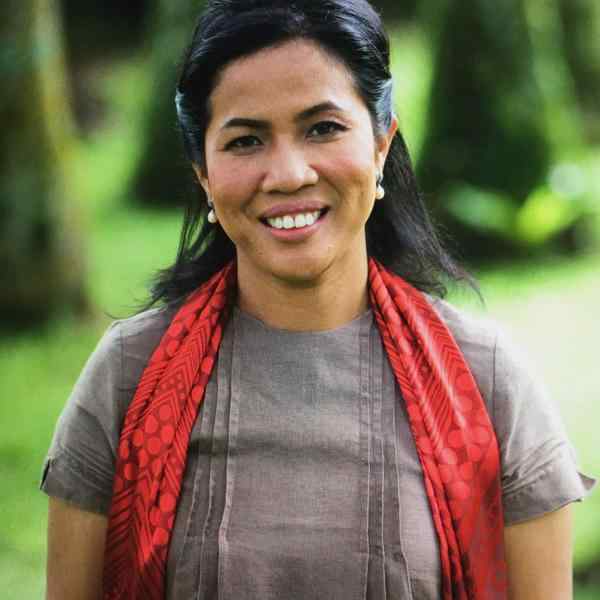
Hotlin Ompusunggu
Problem: Leuser National Park and Batang Toru Forest, which is also known as “Harangan Tapanuli” (Harangan in Tapanuli language means Forest) are important ecosystems for human welfare, as well as forest habitats for Orangutans in Sumatra. Yet, they face the threat of deforestation because of illegal logging and human encroachment for settlement and agriculture. Communities who live around the forest are both a potential threat and potential solution to deforestation.
Solution: Alam Sehat Lestari (ASRI) aims to design the integrated components of ASRI’s healthcare and conservation projects and has achieved great success in reducing illegal logging in Gunung Palung National Park, West Borneo. By providing incentives for conservation, they will provide a bridge and catalyst for the communities living around the forest to work together for solutions to protect and restore the forest. Bringing the healthcare-conservation incentive model to Sumatra will provide dental care incentives for the communities of almost 10,000 villagers near Leuser. The dental care, along with goods that promote conservation (such as tree seedlings), will be used to reforest degraded areas of Leuser.
Vision: Hotlin and her team envision to empower the communities living in the forest to be the guardians of the forest, decreases the number of people involved in illegal logging and encroachment, help the forest to be protected and regenerated, and improve their health and wellbeing.
Motivation: Hotlin wants to be part of this communities as she feels learning from others' experiences, successes, and failures will enrich her capacity and confidence in leading her organization with a bigger impact. This community will also provide her with greater networks to connect and collaborate.
Anjar Ningtias
Founder of Eco-Wedding
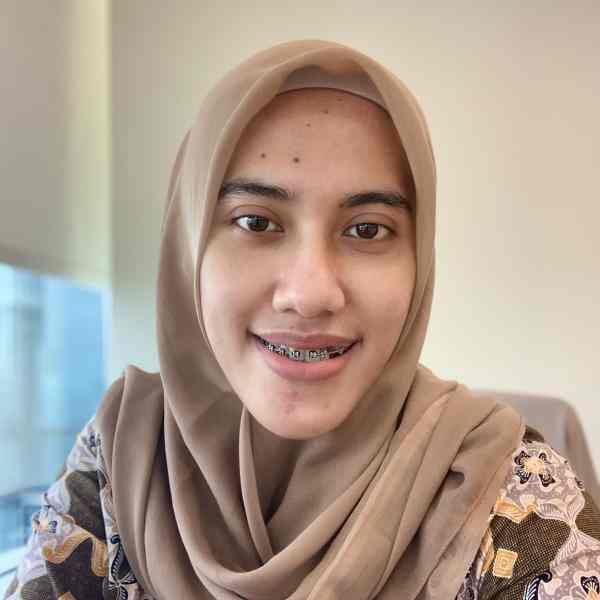
Anjar Ningtias
Problem: Eco-Wedding wants to solve five problems at once: 1) provide Eco-Friendly decorations during the Marriage procession/wedding reception by using upcycled (recycled) materials, 2) sort waste according to its type, coordinating with the garbage stations for decorations, 3) distribute leftover food from processions/ ceremonies and conduct the Zero Waste to Landfill (ZWTL) Program of residual waste generated after wedding ceremonies and receptions.
Solution: The experience of initiating an Eco-Wedding started from the beginning of 2021, when she wanted to tie a sacred promise with her future husband. They agreed to undergo the Marriage Akad Procession solemnly but still pay attention to the environmental side through environmentally friendly decorations, waste sorting, garbage alms, proper food distribution, reducing food waste, and optimizing zero waste to landfill after the Akad and wedding reception. They really believe that the value they have initiated is-- besides generating profit-- they also contribute to saving the earth and educating every prospective bride through the plastic bag diet movement.
Vision: Anjar's vision is to create a movement in Indonesia and create a shift in the wedding industry of Indonesia by specializing in responsible event management based on responsible waste management.
Motivation: She believes that by being part of this network, she will be able to scale and expand here work and start a movement to eco-friendly weddings in Indonesia.
Wiwik Mahdayani
Founder of DESMA Center - Sustainable Tourism & Organization
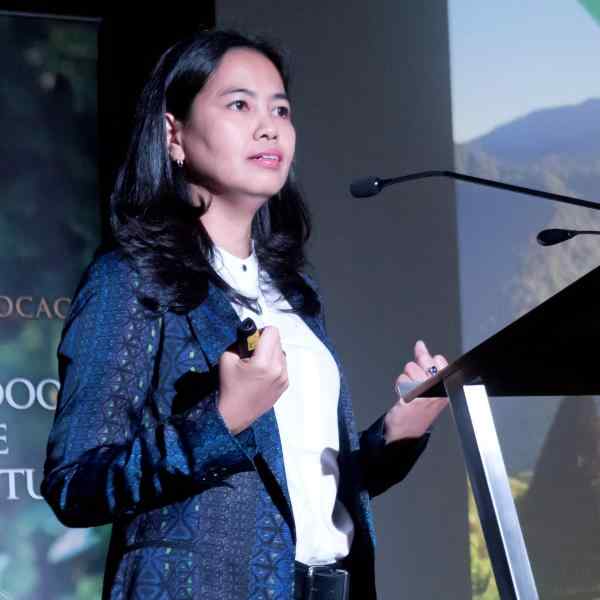
Wiwik Mahdayani
Problem: In Indonesia, tourism is used as way for economic development. However, as the tourism industry is developed there is a lack of concern for the environment and socio-cultural sustainability as well as community involvement. As the tourism industry grows, more damage is created to the environment.
Solution: The DESMA Centre aims to introduce sustainable practices to the tourism industry. DESMA has introduced sustainability approaches where tourism can provide benefit for the local community by encouraging them for their involvement. DESMA brings together stakeholders and knowledge to implement sustainability concept and framework in their development agenda or implementation. By working on three pillars of government advocacy, capacity building, and market linkage, they will ensure the concept is understood and implemented on the ground.
Vision: Wiwik and her team are working towards the three pillars of advocacy, capacity building, and market linkage/networking. They aim to work through advocacy with the government to facilitate policy changes regarding sustainability in tourism and encouraging local communities to receive benefits in their areas. Tourism will impact cultural and environmental conservation while strengthening linkage to the market.
Motivation: Wiwik would like to be part of this network of women to develop DESMA's capacity as an organization. She believes that the DIWA community will provide her and her with team a strong network, shared learning mechanisms, stronger leadership, knowledge, and improved capacity, which will improve their organization's impact.
Duangta Krasin
Founder of Seeds 2 Sustain Co. Ltd.
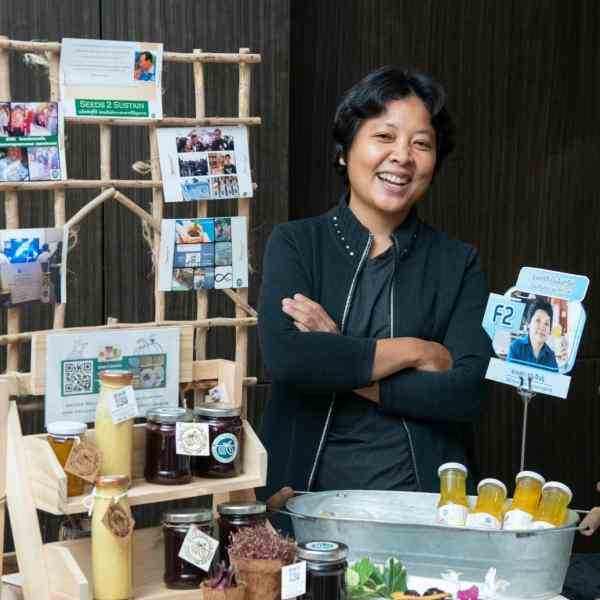
Duangta Krasin
Problem: There's a continuous rise of NCDs such as coronary heart disease, tumors, cancer, high blood pressure, diabetes, and kidney malfunction. They are therefore aiming to reduce the risk of NCDs in farmers, producers, and consumers by providing quality and safe food for patients with NCDs.
Solution: She founded a learning center based on his majesty the King Rama 9's philosophy of agriculture and sufficient economy on Samui Island. The center has hosted several workshops with partners which aim to spark inspiration in everyone to grow their own vegetables. She collaborated with multiple partners on organic agriculture and how to create processed products from organic produce. She also connected with hospitals to allow areas to sell organic produce and products. The products are sought from a partnering farmer network who sell health foods, preventive foods, medicinal foods, and disease-specific foods all over the country. The center also invested in research and development of new innovations for health food and patented it.
Vision: Farmers on Samui Island have more food security and have better income. Together with farmers from all over the country, she wanted to collaborate to export their products to global community; this led to the sharing of local food processing knowledge from underprivileged communities to the global stage. People with NCDs and their families also have more choices of foods that they can trust, safe from chemical substances and nutritious, so they can have a better quality of life.
Motivation: Being a brain-tumor survivor sparked her study of organic agriculture and sufficient economy. She collected seeds of different crops, which eventually led to founding a learning center and the development of organic processed food (which is a foundation towards innovative solution for health foods, medicinal foods, and foods for specific diseases). She connects a network of producers and consumers together in hope of providing more choices for safe foods that are easily accessible at reasonable prices.
Supaporn Tongsook
Founder of Foundation for Community Soul and KHWAN SILLK CRAF
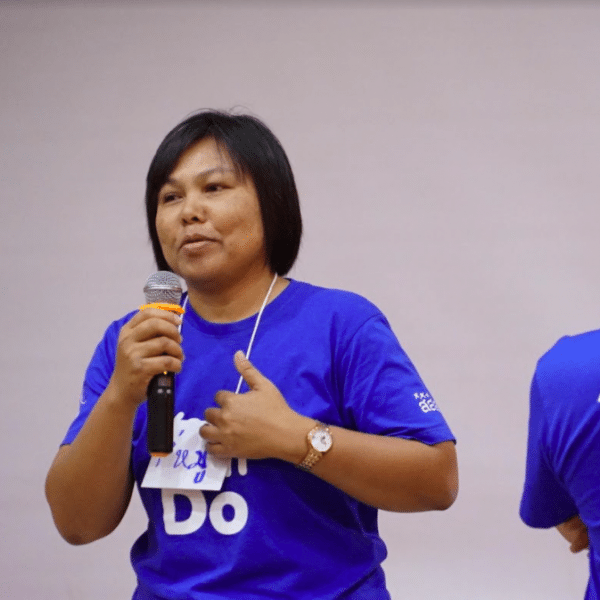
Supaporn Tongsook
Problem: She wants to change the economic (un)fairness in Thailand that is now driving certain groups of people towards marginalization, especially informal laborers who are making and weaving Thai silk. These weavers are forced to sell their products at a lower prices due to economic inequality and lack of negotiation power. Some weavers also lack to skills to make quality products that can be sold in markets.
Solution:
1. Skill training for Thai Silk - it is a local product with high quality and the community has the local wisdom to do it. This workshop would focus on offering new perspectives on its value and how we can make it healthy and environmentally friendly by using natural color instead of chemical ones (which are bad for the producers' health and the environment).
2. Create a saving/financial management group to help our members with their financial situation.
3. Create a network of Thai Silk enterprises in order to strengthen our market presence with quality silk.
4. Create a mutually beneficial business through fair distribution of income, fair labor costs for producers, and fair prices for consumers.
5. Shift the mindset of our members regarding sustainability and life-value.
6. Cultivate local entrepreneurs and craftmanship.
Vision: She wants to create a sustainable change, developing and furthering the Thai silk value chain while creating a market for sustainable Thai silk. She wants to make a concrete impact in the welfare, incomes, and livelihoods of the members as well as generate positive impact to other disadvantaged communities (such as by using the profits from their sales to restore the houses of elders in the community or to help disabled children in the area). She wants to become a model for human development within the community that drives social agenda and achieves organizational sustainability and new business opportunities.
Motivation: Her inspiration is that she wants to see justice in Thailand, less inequality, and fewer people trying to take advantage of each other. She wants to see Thailand become a society where human dignity is respected and holistic welfare is offered-- a society that is truly democratic with good governance and basic human rights.
Natasha Mañosa Tanjutco
Co-Founder of Tayo Change Agency
Natasha Mañosa Tanjutco
Problem: The lack of knowledge about the interconnectivity and intersectionality of environment, economy, and society, the interplay between science and art, and how humanity is falling apart because we are forgetting who we are -- our misplaced identity. What she hopes to achieve is simple-- to rediscover how we are one community or “Barangay” (village or kinship in Filipino) and are all co-creators regardless of age, race, gender, culture, religion, social class, etc. All identify as children of the earth that need to use their unique cultures to contribute to unified and decolonized systemic change.
Solution: A youth-led Change Agency called TAYO, a Filipino word for “We” or “to stand up.” This will help people move forward with design solutions and sustainable strategies by collaborating to disrupt and change the world. They cater to:
- Kids for Kids PH (Youth Organization) for the Youth, a youth-led empowerment organization with a growing network of almost 1000 young people from all over the Philippines.
- Retaso (Social Entreprise) For Regenerative Design, a social enterprise that empowers women seamstresses to craft bags made from 100% local upcycled textile waste.
- KAMALAYAN (meaning awareness in Filipino) (Movement) For Local Collaboration, an art and music festival dedicated to climate and culture.
- Habilin (Movement) for International Innovation, which builds environmental education material and children’s books, dedicated to Southeast Asian innovations & solutions.
- Project Pulo, their community development organization dedicated to crafting climate resilient design solutions.
- Bye Bye Plastic Bag, a movement powered by youth around the world to say NO to plastics.
Vision: Change the world through design solutions where creativity and sustainability meet for positive change, with the vision of a world where the economy, environment, and society act as a united entity for both people and planet.
Motivation: Coming from a family of youth and environment advocates, as well as a grandfather who was a National Artist of Architecture. She was exposed to all kinds of art, outreach programs, and charity fundraisers. By the age of 15, she had a realization that giving back to something greater was not normal for anyone to do, so she and her sister wanted to give the youth a platform for change. At the age of 15, she co-founded Kids for Kids Philippines, an organization to empower the youth to power the nation.
Ma Flora Monica Tejas-Belinario
Founder of Jasconius Technologies Inc.
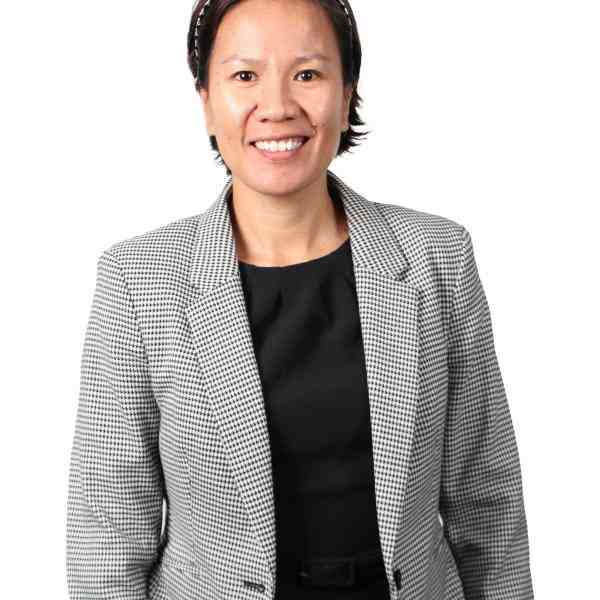
Ma Flora Monica Tejas-Belinario
Problem: The inequality of access to capital between small-scale and commercial fishers in the Philippines and the inequitable distribution of benefits in the supply chain-- specifically stressing the income gap disparity between small-scale fishers and traders which have been long-discussed yet received few solutions.
Solution: Tindagat is a fisher-to-institution fair market that supports local fisherfolk communities by providing them a digital platform to sell their seafood goods to consumers. This new channel will enable them to have digital accounts to trace their transactions and build their financial records. Sales will be driven by online community sellers instead of traditional retailers and movement of goods will be optimized to minimize waste and costs. Market prices of goods will include a portion to be set aside to a cumulative fund meant for their partner fisher community’s welfare programs.
Vision: Take the fishers out of their vicious low-income cycles while partnering with them in efforts to promote traceability of food and responsible consumption-- done by providing them a patronage refund to incentivize behavior that supports sustainable fishing practices. They want to offer the small-scale fishers an alternative sales channel and supply-chain, one with lesser layers that can provide them bargaining power and increased income.
Motivation: She is a Fisheries Technologist and has been working with a non-profit organization for five years. She was exposed to several startling realities of the Fisheries Sector and hopes to be a game-changer in the industry. She is currently taking up Master of Science in Innovation and Business at the Asian Institute of Management and has met some aspiring innovation experts from various fields. Their shared desire to leverage innovation in impact creation brought them together to form Jasconius Technologies, a corporation with the purpose of helping humankind and seas to progress together.
Pamela Nicole Erive Mejia
Founder of Phinix Textile Recycling Centre

Pamela Nicole Erive Mejia
Problem: The environmental problems are negative impact of fashion industry, negative impact of textile waste, and few/no textile recycling centers in ASEAN region. The social issues are the dying industry of shoemakers, low employment rates for disabled people, and struggling furniture makers.
Solution: Phinix is dedicated to:
- Collect and reduce textile waste and practice sustainable fashion production.
- Collect textile waste and transform them into higher valued products such as shoes and bags.
- Product life extension for the textile waste, done by turning them into higher valued products that can be used again.
- Partner with households, garment factories, and fashion brands for proper textile waste disposal.
- Develop PHINIX BRIX-- a brick made from shredded textile waste combined with an eco-friendly binding agent that can be used to make furniture and walls. She wants to eventually develop it into real construction material.
- Provide employment for unemployed mothers and those deeply affected by the pandemic in the textile recycling process.
- Upcycle textile waste by cutting the old clothes into strips and weaving them into new fabric.
- Give job opportunities to people with disabilities as textile weavers.
- Provide alternative sustainable fashion products such as bags, footwear, and homewares to consumers, therefore influencing their market to choose responsible consumption.
Vision: Collect and reduce textile waste and practice sustainable fashion production, scale their environmental impact by partnering with marginalized community in the Philippines, provide more jobs and training for people with disabilities, and replicate their business model in other ASEAN countries as well as the UK.
Motivation: While she was taking her Bachelor's Degree Thesis on Fashion Social Enterprises in the Philippines, she was inspired to create a fashion social enterprise. She was trying to identify environmental and social issues and problem in the Fashion Industry that needed solutions and had a Eureka moment when she was cleaning her closet and realized that the Philippines doesn't have a proper textile waste disposal system. This inspired her to take her dresses to shoe artisans and ask if they could upcycle them. This was how Phinix Started.
Zazila Roslan
Founder of Ezplast Solution
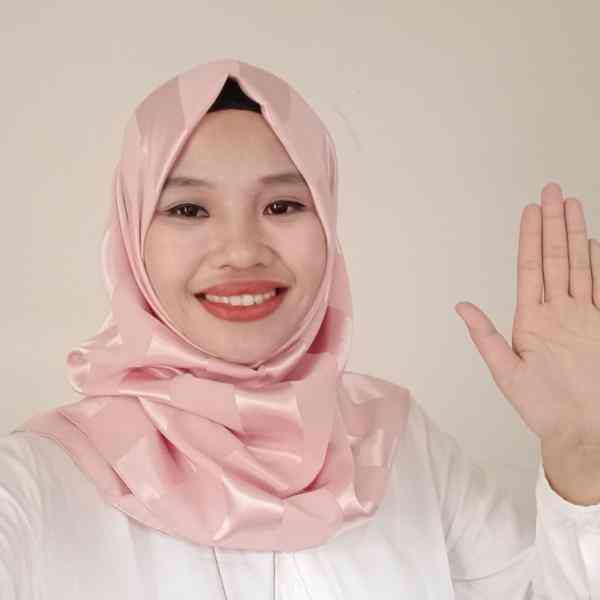
Zazila Roslan
Problem: Plastic pollution and deforestation in Sabah is continuously increasing. The usage of plastic is not controlled and there is a lot of waste and pollution due to this. Alongside this, there is an increase of deforestation in Sabah due to the lack of education and the continuous need for resources. There are not alternatives in place for plastic, nor are there alternative materials to wood.
Solution: Ezplast Solution serves the environment and is committed to giving back community by buying plastic waste. They reuse the purchased plastic to create plastic wood, which is made by plastic waste. Through their work, Ezplast Solution is creating plastic currency within their community. This leads to a decline in both deforestation and plastic pollution.
Vision: Zazila and her team aim to create a circular economy of plastic within their community to help decrease deforestation. She aims to expand within her community first before moving to other parts of Sabah. She hopes to lead by example to get others to advocate for alternative resources to timber.
Motivation: Zazila is motivated to be part of this program to learn and engage with other women social entrepreneurs, which will help her better understand how to further her work and see if there are other solutions out there. She is passionate about ensuring that the environment of Sabah is saved and there is a system in place to ensure it is not ruined.
S&P Global Foundation Cohort- 34 WSEs
Irnu Khoirunnisa
Yayasan Gita Pertiwi
Irnu Khoirunnisa
Problem: Many of the cultural systems in Indonesia tend to be dominated by men, often making economic, social, environmental and political engagement limited for women. As a result, women are often not involved in decision-making. The Green Revolution only strengthened men's dominant position-- agricultural work that had been performed by women, like rice harvesting, was taken over by men. Because farmers' groups and training programs were aimed largely at male farmers farming rice, women found themselves more limited in their sources of education. Today, women continue to lack information, and they are often unable to contribute to or fulfill their families' needs for basic things like school fees, healthcare, household goods, and recreation.
Solution: Rossana sees that the success of sustainable agriculture depends largely on the development and training of local people. Through a curriculum composed of a network of field learning centers, Rossana is helping rural women find opportunities and learn the skills they need to pursue them. By mastering practices in sustainable agriculture, the women also rise to a new role in their families and communities. She is also incorporating sustainable practices to ensure that the environment is taken care of throughout this process.
Vision: Rosanna would like to continue to expand her work around Indonesia to ensure that more women are empowered. She also aims for her scope to reach Malaysia and the Philippines. Alongside this, she has a vision to bring more sustainable farming practices across Indonesia through these women.
Motivation: Rosanna would like to train her successors on how to think of the future of their work. She wants to ensure that her and her team are aligned, have a plan for the future, are able to lead, and feel a part of a community of likeminded women.
Istini Anggoro
Founder of PPRBM Solo
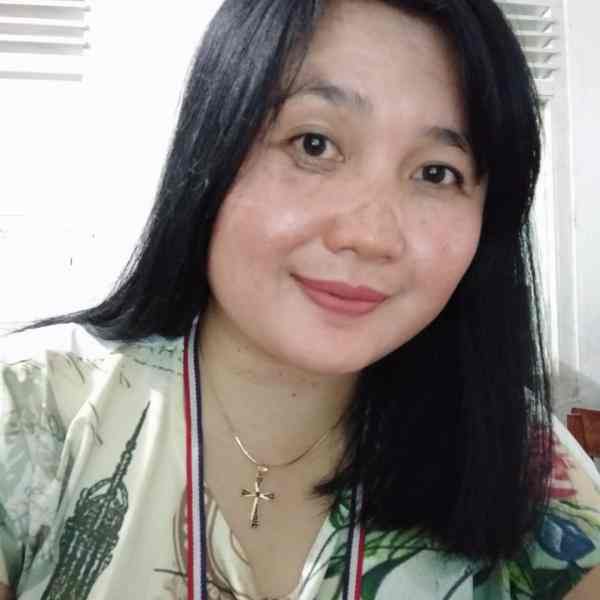
Istini Anggoro
Problem: The role of women with disabilities is still very minimal, especially in small regions and villages. Many of them are not actively involved in community activities, and there is a lack of space for them to participate. They therefore tend to just stay at home without doing anything, which means they don't hone their skills. Discrimination from family and society results in women with disabilities becoming less insightful and less confident when meeting others, so it is very important to educate families and the community on providing participatory space for women with disabilities. This is related to their future, so at the very least there must be provisions for them so that they can be more independent, confident, and able to grow.
Solution: By forming a community in an area consisting of women with disabilities, Istini encourages women with disabilities to be more independent; PPRBM Solo provides them with advocacy and empowerment training, as well as organizational management, public speaking, and vocational training to support them in becoming entrepreneurs to encourage more female entraprenerus with disabilities to emerge in the region. In addition, they network with local stakeholders and companies to support the business results of women with disabilities.
Vision: There is gender equality, especially for women with disabilities in these small regions, because if there is no equality then there will be an imbalance of women's roles—this will leave them feeling weak and powerless. This cycle is what PPRBM Solo wants to break; the shackles that have become a label for women will be broken when there is synergy between those with disabilities and society. Providing participation spaces for women with disabilities adds a special plus because women are able to actualize their potential and make their lives more prosperous as a result.
Motivation: Istini wants to be part of this community because she wants to learn a lot about women and entrepreneurs, as she has very little knowledge about these two things at the moment. She also wants to invite all women to be more confident in their potential, so that they can become more independent and earn their own income.
Oemi Faezathi
Akademi Paradigta
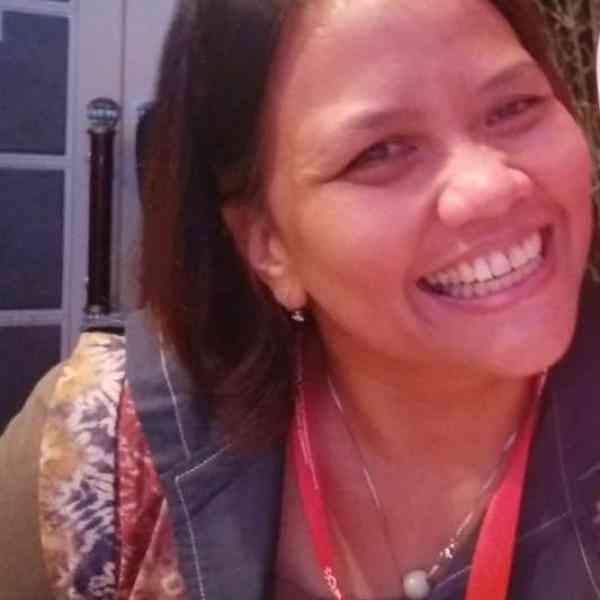
Oemi Faezathi
Problem: The high level of violence against women and children, poverty and injustice, as well as the lack of functional family structures makes it hard to create a comfortable and safe life for their family members. Mien challenges herself to be a part of improving the order to become the main pillar of the realization of justice, and to become the vanguard for the creation of productive and contributive human beings for this country.
Solution: Helping to make society, especially women, aware of the importance of women being actively involved in decision-making, increasing women's capacity to become leaders, and developing activities that are beneficial to many people.
Vision: Increased prevalence of women leading change through various strategies, such as holding schools or academia for women, involvement of family members to carry out good practices for the wider community, or expanding institutions or education to develop leadership for women and their families in areas.
Motivation: To increase the capacity to become women social entrepreneurs, understand strategies and effective leadership methods, and want to disseminate knowledge so that more women will have the spirit of social entrepreneurship. Mien also wants to be part of a community that spreads social entrepreneurship for women in particular, as well as society in general.
Nuke Aprilia Cut Meltari Gs
Founder of Nukeytalks
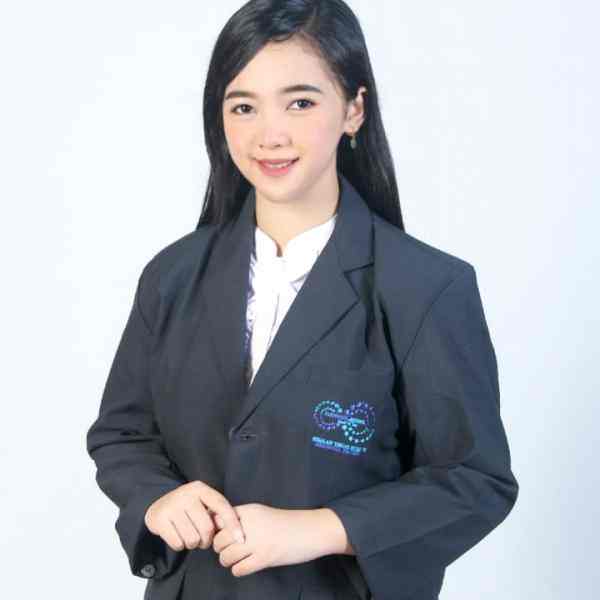
Nuke Aprilia Cut Meltari Gs
Problem: The Nukeytalks team and Nuke are trying to solve the problems of adolescents and young people in terms of education and the economy. They're doing so by presenting interactive classes on self-development and career preparation that can be accessed by anyone without limitations by area, social status, gender, and so on. They believe that a good education and a good economy are everyone's rights, so they try to help as many young people as possible to grow, develop, and ultimately have a better life.
Solution: Nuke chose to collaborate by establishing an organization with acquaintances from three countries, Indonesia, China, and Switzerland, to jointly create a free program on self-development and interactive career preparation with the concept of fun learning and empathy. This concept was chosen so that program participants, or what they usually call "mentees," can not only learn and apply their knowledge, but also get a community or group that is supportive, fun, and cares about mental health.
Vision: In the next five or ten years, Nuke would like to increase numbers of reliable and quality human resources in Indonesia, reduce unemployment, and reduce poverty. This can be achieved by creating and perfecting special applications that can be downloaded by students to learn from anywhere and at any time, holding roadshows at every school and campus to reach many people so that they are equally able to develop themselves and achieve their dream careers, and collaborate with many parties so that their good social impact and goals can be achieved as soon as possible.
Motivation: Nuke wants to be part of this community because she wants to get a lot of input and insight to improve the quality of her organization, learn more about leadership, and collaborate with other community members to jointly build a better environment and world for everyone.
Harnita Rahman
Founder of Kedai Buku Jenny
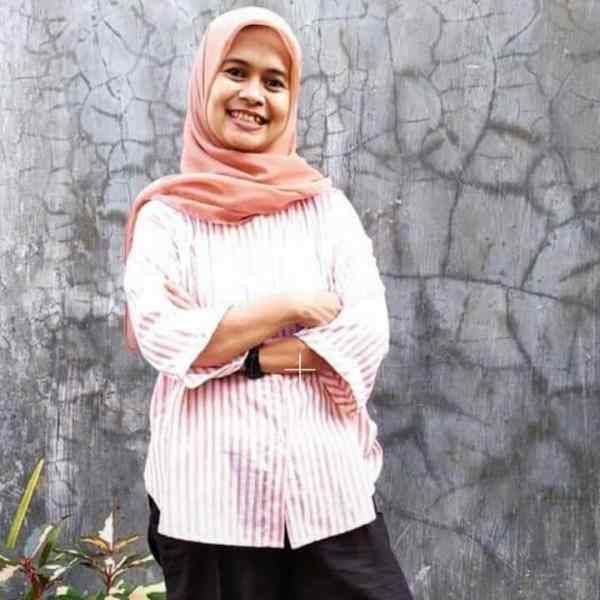
Harnita Rahman
Problem: Their community focuses on providing inclusive learning facilities for young people in Makassar through creating a public library full of books and music in their first year. They aim to fix the lacking public places for young people, especially those that provide full access to information. Throughout their journey, they've witnessed many problems related to children but focus on the lack of places for them to play.
Solution: They came up with the initiative to create a playground where children can do many things together, such as arts and theater (like Teater Anak Ketjil). This initiative gives children the ability to explore the possibilities of what they could do, as well as increase their verbal abilities during the fun playing process.
Vision: Learning will become more fun with this playful learning approach, as well as more diverse, inclusive, and artsy; this could be applied in other young communities in Makassar. Kedai Buku Jenny also creates a well-documented and more sustainable music-learning process.
Motivation: Since they moved to Wesabbe, many children have come over to the library. They spend a lot of time together in the library, playing and learning. One day, Harnita saw them playing with their gadgets and suddenly communicated less; they play in a different way. Harnita needs to improve herself in order to not stop developing her potential.
Ni Putu Candra Dewi
Founder of Bumi Setara
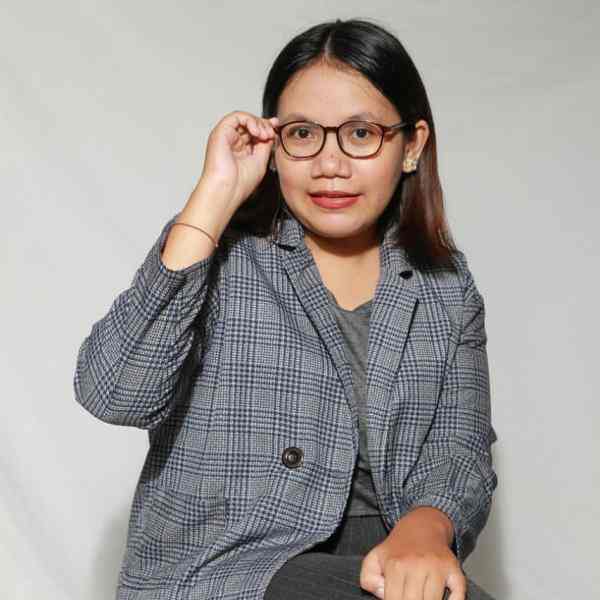
Ni Putu Candra Dewi
Problem: Education is an important thing to develop skills and ways of thinking. Through education, a person's life can become better, enabling them to help themselves and help others. Education is also closely related to the welfare of a country. However, in Indonesia, education seems to be a burden for many. Public perception is that people with disabilities are burdens to their families, and they're even stigmatized as people who are subjected to curses or disgrace. People with disabilities lack access to education, thus increasing the incidence of illiteracy. Even though the government has made efforts to impose free education for all, it has not been able to reach all people. Bumi Setara is a scholarship program aimed at students with disabilities (starting with Bali) as an active affirmation of access to education for children with disabilities.
Solution: With this scholarship, there are donors who are called Kakak Bumi Setara and beneficiaries-- namely Bumi Setara's younger siblings. Kakak Bumi Setara is a regular donor who donates money starting from one hundred thousand per month. This model has been implemented for 5 years and they have dozens of Bumi Setara brothers in Denpasar and Badung Regency. In addition, they also carry out programs related to sexual and reproductive health education for deaf siblings through the National Camp for Deaf children and inclusive broadcasts on the Bumi Setara YouTube account.
Vision: This is in the form of social impact in the field of education on disabilities, either through informal education in creative and fun ways or through formal education programs. They also want to have a legal entity and perhaps full-time staff at Bumi Setara, because they've been doing this impactful outside of our working hours or on weekends so far.
Motivation: They want to gain new insights or remember things that are known but have not been put into practice. They also want to share and create networks with changemakers in the region. They want to learn to transform Bumi Setara into a social entrepreneurship so that this new initiative can be sustainable and have a more intense impact and balance between quality and quantity.
Nila Tanzil
Founder of Taman Bacaan Pelangi
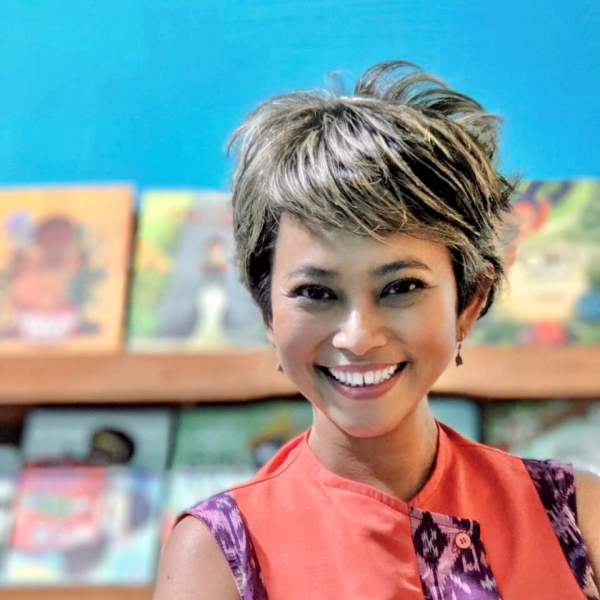
Nila Tanzil
Problem: The quality of education in Indonesia is not evenly distributed-- the gap in the quality of education between urban areas and remote areas is very large. The further from the capital city, the lower the quality and the more limited the facilities and infrastructure in education. Children's literacy skills, especially in Eastern Indonesia, are much lower than that of children in other regions in Indonesia. Indonesian EGRA (Early Grade Reading Assessment) data from RTI in 2014 states that the reading ability of children in Java - Bali is 59.2 words per minute, while children in Maluku, Nusa Tenggara and Papua are only 29.7 words per minute. Meanwhile, children are said to be fluent in reading if they can read 50 words per minute. The understanding of children in Eastern Indonesian reading is also very low, only 46% when compared to children in Java-Bali who have a reading comprehension level of 78%.
Solution: Nila began to establish libraries for children around Indonesia to increase literacy among young children. Apart from establishing libraries for children, Taman Bacaan Pelangi also provides various trainings for school principals and teachers. They also advocate for librarians for each elementary school. The training for teachers, school principals ,and librarians focuses on library management systems and literacy programs that are able to increase children's reading interest & habits.
Nila also created a program called "Illiteracy Free," which aims to improve children's reading skills. The intervention in this program is in the form of teacher training, especially for lower-grade teachers (grades 1 and 2). In this training, the teachers were taught methods to teach children to read in creative and fun ways. The Rainbow Reading Gardens team also provided assistance to teachers when they taught reading to their children in class (during the Indonesian language subject) for several months at the start of the program implementation. This is done so that teachers are accustomed to using new methods in their teaching activities. Nila is working with the "Parents Engagement Workshop" program as well. She believes that various stakeholders must be involved to form a reading habit-- so not only teachers and schools, but parents at home also play an important role. For this reason, parents are also given workshops and training three times per year, where they are taught how to foster a reading culture at home.
Vision: In the next 5 or 10 years, Nila hopes that the Taman Bacaan Pelangi model library can be replicated and adopted by education offices in various districts in Indonesia so that more elementary schools have child-friendly libraries with good library management systems and sustainable programs. She also hopes that there will be more collaborations with the local government and corporations for various capacity building with teachers in remote areas. Empowered teachers will empower their students. She wants more teachers to be empowered to enhance their skills and abilities so that the quality of teachers in various remote areas in Indonesia can be significantly improved.
Motivation: She wants to be part of a community that can help each other & share experiences. Meeting inspirational, passionate, and positive people gives her additional energy to do even more things. Being a social entrepreneur is a lonely journey, as a lot of time you feel like you have to do many things and solve many problems by yourself. A lot of people depend on you. That's why Nila thinks finding your own tribe is very important!
Ng Swan Ti
Founder of PannaFoto Institute
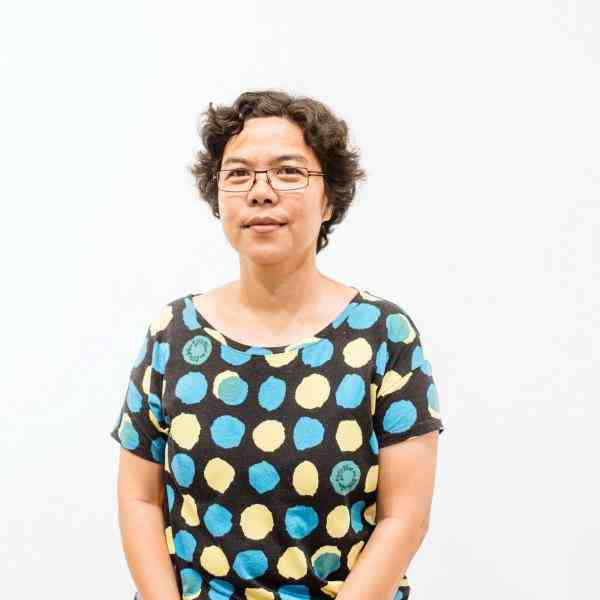
Ng Swan Ti
Problem: Freedom of expression and freedom of speech in Indonesia has been deteriorating steadily since 2014. Like democracy itself, freedom has no longer been possible for the past five years. Citing reports from the Central Bureau of Statistics (BPS), Indonesian freedom of speech has decreased from 66.17 points (year 2018) to 64.29 points (year 2019), while the freedom of assembly score also went down from 82.35 points to 78.03 points in the period.
Solution: Training programs in using photography and visual storytelling to strengthen critical thinking skills, such as the Permata Photojournalist Grant. This program that uses photography and visual storytelling to promote democratic values and human rights, namely Photo-Demos.
Vision: PannaFoto Institute has a strong Learning Management System so that their photography education and visual storytelling are increasingly reaching more people who think openly and critically. This increases the attitude of tolerance and empathy for others.
Motivation: Swan Ti was born into a Chinese family in a village about 30km from the city of Malang. Her experience as a minority, being discriminated against as a foreign citizen, made it difficult for her to access education and she used to refrain from expressing opinions in public. She believes that education is a tool that can make a difference in a person's life, which includes photography education.
Amanda Celine Raissa Santoso
Founder of Anotasi
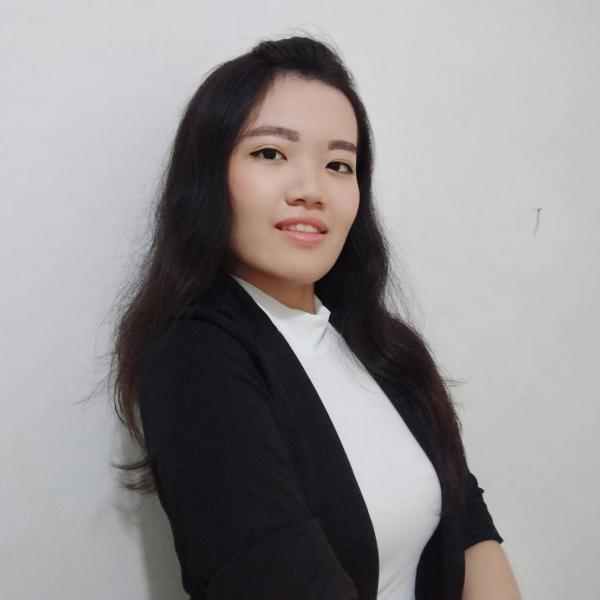
Amanda Celine Raissa Santoso
Problem: Anotasi is a digital literacy forum for young people in the field of social science. Their main mission is to educate 65 million young people in Indonesia by presenting content and space as a means of thinking critically. They explore the realm of social science in depth and then translate it into bite-sized, easy to understand content. They are also open to collaborations with various parties, especially academics and young people.
Solution: Annotation Team are currently initiating a campaign called "Social Science for All". They want to provide a platform that's a source of learning about social science, as well as form a network and community. They want to present this knowledge in the form of a mini encyclopedia. Meanwhile, there will be a community for the common people and a collaborative space for experts in the field of social sciences to share knowledge.
Vision: Their big dream for Annotation is to make it a Research Center & Critical Learning / Mentoring Service Provider for the general public. This research center would specifically serve as a channel to summarize social science survey results. There's an overview of the mechanism using the Business to Business flow, which can later be distributed to research institutions
Motivation: As a woman, Amanda observes how there are very few women who take the role of leader, especially in Indonesia. The current movement on gender equality is being held, but the patriarchal system that is very thick in this country makes a woman rank below men. Amanda wants the fundamental thing a woman possesses to be leadership and upholding intellect. Amanda developed her vision, especially as she was a Product Manager whose world was often associated with men's work. She hopes that by being part of the DIWA community, Anotasi can have even more impact on advancing the younger generation to be more empowered and impactful. Inculcating values to always hone one's skills and knowledge is the key to Anotasi, as is introducing social science as a driving force for the nation in the midst of today's demographic challenges.
Ada Chirapaisarnkul
Founder of Taejai.com
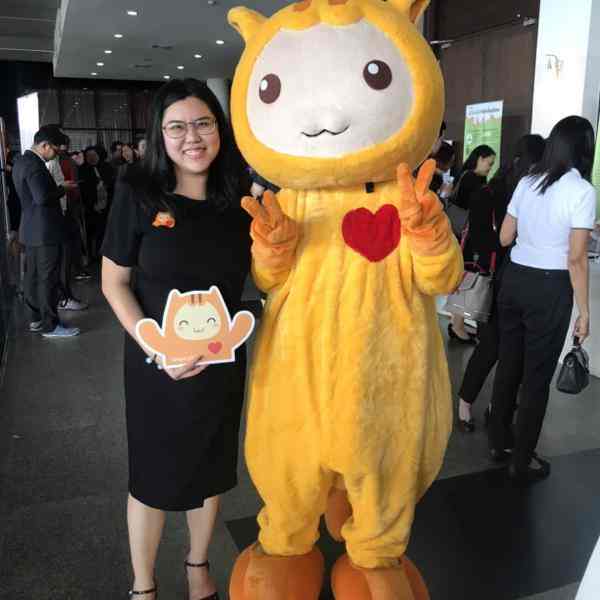
Ada Chirapaisarnkul
Problem: The civil society is rather weak in Thailand, hence there's substantial capacity to grow and lead changes in the country. One of the problems is a lack of financial resources to kickstart initiatives and continue work in early stages. which is necessary to create an impact portfolio to gain access to other sources of funding. They also found that there was no reliable infrastructure that ensured transparency or impact accountability for citizens taking action. The co-founding team believe that by tackling access to funding for active citizens, small impact organizations and early-stage social enterprises could greatly support the changemaker ecosystem in Thailand; they therefore started TaejaiDotcom nine years ago.
Solution: Donation-based, for-impact crowdfunding platform TaejaiDotcom enables and empowers active citizens to take actions that create positive impact and support underserved population/issues in the community-- mainly operated in Thailand. Impact partners can submit their project proposal to TaejaiDotcom, who has a team that does screening and consulting support for their Impact Partners. Once the team is sure the project is sound and sensible, it will be uploaded on the website to raise donations from the general public. Donors will get to read the content and expense details of each project before making the decision to donate. They'll then get updates on their donation when there is progress on the project. The platform provides a channel for citizen-fundraised impact partners, while providing an impact market for donors who want their donation to bring tangible social impact.
Vision: TaejaiDotcom wants to engage over one million active citizens in the next five years either as donors, impact partners, and/or volunteers. Within the same timeframe, they want to mobilize over 500 million baht to support more than 100 impact organizations and 1,000 impact-driven initiatives. They also want to expand their capability from democratizing societal changes via crowdfunding to other types of citizen-sourcing, as well such as volunteering and policy advocacy.
Motivation: Ada is an economist by training, and always obsess over the idea of mobilizing resources to where they could most effectively and efficiently create value. She has been active in philanthropy, both in action and also in research, for almost two decades, and therefore knows very well that the kindness market in Thailand is very big (for example, combined charitable donations in 2016 totaled about 89 billion baht as opposed to the 11-billion-baht annual budget of Social Development Ministry in the same calendar year). She is also well informed about how the desire to give has increasingly become more impact-driven rather than merit-based in the past decade. She has become thrilled with the idea of creating an impact marketplace where the demand for impact can meet the supply of good initiatives. She truly feels that this bottom-up citizen platform will have the power to create substantial changes in her country for years to come.
Nattinee Sae Ho
Founder of Thrive Venture Builder
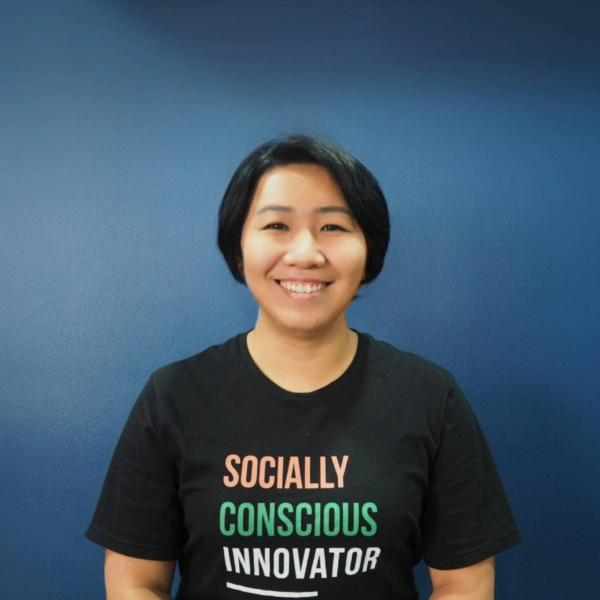
Nattinee Sae Ho
Problem: The lack of Social Enterprises in Thailand due to the lack of knowledge, ecosystem, support teams, and role models.
Solution: Thrive is solving this problem through offering their knowledge, mentoring people, and connecting social entrepreneurs with resources. They are also creating their own social enterprises/impact startups. Currently, they have five Internal Ventures (three of which are partnered with Ashoka fellows in Thailand to scale their impact). These ventures work on the issues of poverty, climate change, quality education, and affordable elderly care.
Vision: Help support over 100 social enterprises in Thailand through mentoring, investing, building, educating, and consulting for a minimum of 10 larger corporations in Thailand; their goal is to integrate sustainability into their strategic roadmap.
Motivation: Dora did a lot of volunteer work in the social sector in the past (as well as worked in a social enterprise) and realized that Social Enterprises are an amazing model, but few people strived to create and survive due to the lack of business knowledge and support functions (finance, community, knowledge). Having previously worked in the Tech space running a venture builder and leading innovation teams for many organizations, she realized that she could use the skills that she has to equip teams with what they need-- hence, her jump from her previous company to Thrive.
Chanakarn Kachonseree
Founder of MindVenture
Chanakarn Kachonseree
Problem: Youth mental health - 44% of youth are at risk of depression (Department of mental health, 2017). Even worse, since COVID-19, 70% of youth are stressed and anxious (UNICEF, 2019). Because of stigma, limited number of mental health professionals, and a law that requires parents’ permission for formal treatment, we need more self-care and community-care systems by youth that support youth. This would serve as an early detection method and mental health enhancement.
Solution: MindVenture has built the community for youth to help them manage themselves by equipping them with mindfulness and emotional intelligence skills. They offer free online educational content via social media, as well as step-pricing online workshops that tackle top concerns of youth (including career decision making, study motivation, self-love, etc.). They empower youth to be community leaders by hiring them to produce content for other young people, which also gives them pocket money for school. They also provide early detection assessment for youth at risk of depression and refer them for professional support.
Vision: To have 1 million high school students living across Thailand that are able to access self-care and community-care online platforms, reduce youth’s depression and suicide rate, promote tighter bonds for social support within family and local communities, and increase productivity-- saving healthcare costs and improving the economy by promoting mental wellness.
Motivation: As a part of the LGBTQ+ community, Kangsom has struggled with her identity in high school. She had received a listening session from a volunteer, which helped her start to accept herself and thrive. After that, she become passionate about healing practices, including mindfulness, coaching skills, emotional intelligence, and more. She started a workshop with her friends to promote self-awareness for youth; this was when they were in university, and was just the beginning of their journey.
Mira Veruphak
Founder of Flock Learning
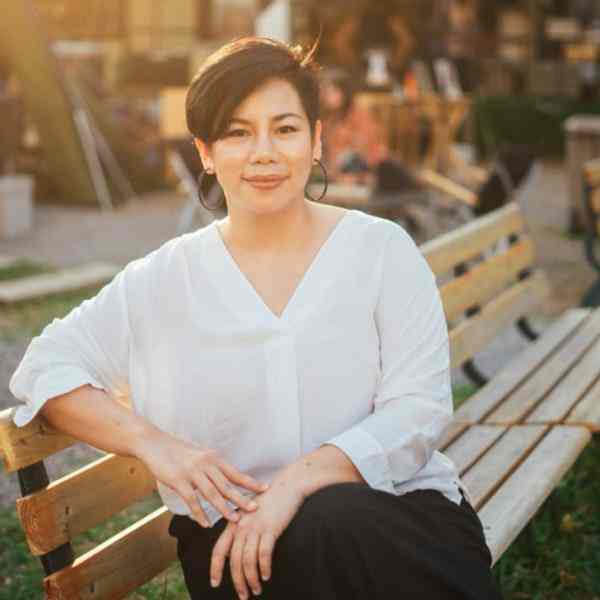
Mira Veruphak
Problem: Lack of support for families teaching themselves without formal education. The quality of education is an issue, mainly how to offer alternative learning for children and help them gain access to quality education (through EdTech). There's not enough support for children, youth, and family development, particularly in early childhood.
Solution: She founded Parenger program, or Parent as Changemaker, which is a program that supports parents and other establishment in creating learning space for children, youth and family. She also founded Mappa, an online learning platform which aims to provide tools for parents to teach life skills to their children
Vision: Private sectors and government invest more in child and youth capacity development. There are more emerging ecosystems for learning that are stronger than the Thai education system
Motivation: As a mother, she sees the potential and capacity of parents as those who can create learning experiences anywhere. She believes that anyone can create positive impact in their own way without waiting for the education system to change
Wannakanok Pohitaedaoh
Founder of Association of Children and Youth for the Peace in the Southernmost Provinces of Thailand
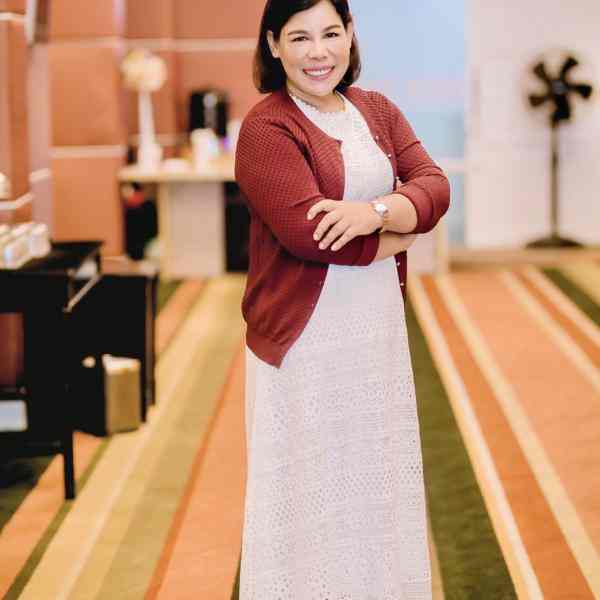
Wannakanok Pohitaedaoh
Problem: Children and family who are victims of the violent insurgency in the three southernmost provinces of Thailand are falling into the vicious cycle of violence and poverty.
Solution: The first one is protection and support, provided to young people who are victims of violence. The next one is healing and recovery for children through educational opportunities and more. The third solution is capacity building and leadership development, which will help children discover their potential and become leaders of society, as well as specific skills development for job placement. Finally, they have recently started a social enterprise which sells products from students within their network
Vision: She wants to create a social enterprise which creates jobs, income, and stability for children and single mothers. She wants to become less reliant on external funding.
Motivation: The loss of family members due to violence. Families were broken, people were left without jobs, and some were without opportunities to continue their education. Their organization wants to offer young children who lost their family a chance to further their education, as well as opportunities to develop their skills which lead to job placement so that they can have a good quality of life without being excluded from society.
funding.
Motivation: The loss of family members due to violence. Families were broken, people were left without jobs, and some were without opportunities to continue their education. Their organization wants to offer young children who lost their family a chance to further their education, as well as opportunities to develop their skills which lead to job placement so that they can have a good quality of life without being excluded from society.
Pansita Sasirawuth (Rux)
Founder of Hear & Found
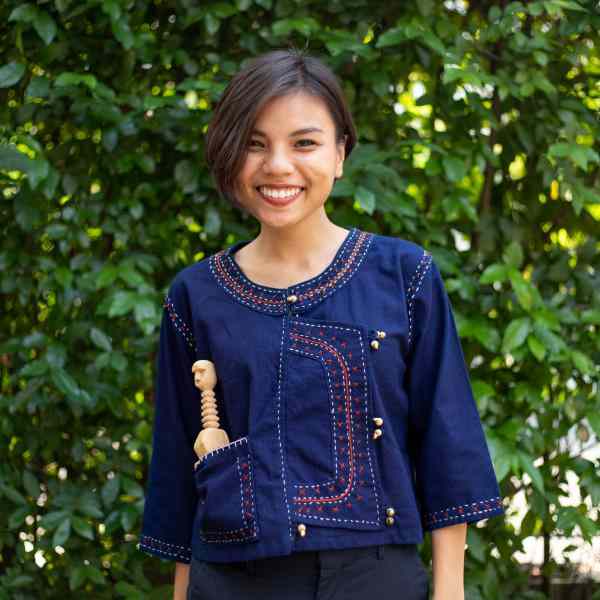
Pansita Sasirawuth (Rux)
Problem: Ethnic groups in Thailand are being insulted and facing discrimination. Thailand has more than 70 groups of ethnics, which is around 10% of the total population; most of the time when people hear "ethnic" or "tribe," however, the first things they think of are illegal activities (such as drug dealing, deforestation) or being underprivileged because the mass media portrays them that way. This has resulted in the intimidation of and discrimination against the ethnic population. The media stereotype ethnic people, which makes regular citizens view ethnic groups as others and results in conflicts; they view ethnic groups as non-Thai citizens who should not stay here or share our resources. This made the younger generation of ethnic people feel ashamed of their culture, resulting in the lack of motivation to preserve their culture and ways of life. This will eventually make Thailand lose cultural diversity.
Solution: She found that local cultures and wisdom, especially music, are very unique. It has distinctive rhymes and value, both socially and economically. It's also a tool to record history, wisdom, and different languages. It can also lead to revenue generation for the community, so they use music, creativity, and collaboration with the community in creating activities of Hear and Found. The Sound and Music solution is the story of their ways of life, cultures, and local music, and how those are conveyed through shared experiences between ethnic groups and regular citizens (such as through music festivals, travel trips, and exhibitions). The Online Music Library is online space that collects sounds and music from local communities in Thailand with information on their origins. This space allows young generations to learn about, gain access to, and buy songs which they can use in their own creative work (the original artist will receive their fair share of the download revenue)
Vision: The impact they want is that ethnic groups in Thailand receive more recognition and that the public sees value in cultural diversity. Ethnic musicians, both old and young, will have the opportunity to use their local music in generating revenue for themselves sustainably. She also hopes that there will be a change in law or policy that increases ethnic group sustainability and protection. In the next 5 years they aim to create impact locally, scale to ASEAN in 7 years, and globally in 10 years.
Motivation: Content and image about ethnic groups in Thailand that says "hill tribe people burn forests" or "ethnic groups sell drugs" are furthering the divide among different groups and create negative impacts on them. With four years of volunteer service with her university and three years in community-based tourism, she was able to experience the cultural diversity, beautiful simplicity, and local wisdom of ethnic groups and hill tribe groups. With these experiences, as well as her experience with storytelling, she wants to convey a message that will help society understand ethnic groups.
Nateera Chanjitwithaya
Operation Manager of HiveSters
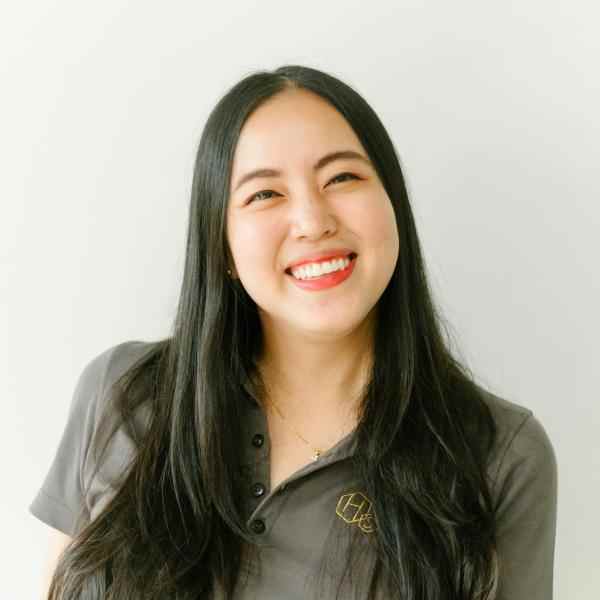
Nateera Chanjitwithaya
Problem: Thailand has a lot of beautiful cultures-- those that remain as well as those that have started to disappear. Nateera believes that Thai people, regardless of their generation, might not know the arts of banana stalk carving, drawing Thai water drop patterns, how to make "Pang Puang", etc.. These make up the identity and craftmanship of Thailand, which should not be neglected or disappear with time. People do not see their value, which is why the new generation does not want to further these arts and why those who have the knowledge feel that what they do is not valuable.
Solution: Furthering Thai culture and knowledge through sustainable tourism that helps to preserve cultures and community's livelihood, where travelers can choose to go on a trip to learn from locals and explore. Not only can travelers learn from doing real activities with locals, but they can also help distribute the income throughout the community. HiveSters also uses a part of the revenue as funding for the company's projects-- capacity and skill building for the communities catering to their need such as English classes, as well as teaching young people to learn about Thai culture through additional classes after school.
Vision: She wants to reduce poverty and expand collaboration with other groups such as ethnic minorities, people with disabilities, etc. while highlighting the importance of sustainability and the environment. She wants this model to be adapted within other countries that might face similar issues.
Motivation: She joined this organization was because she wanted to create a positive impact for society. Her inspirations are the smiles, happiness, and friendships from people in the communities she's worked with after they witness the changes that HiveSters can provide.
Nawarat Waewployngarm
Founder of E-lerng (Baan Narng Lerng Community)
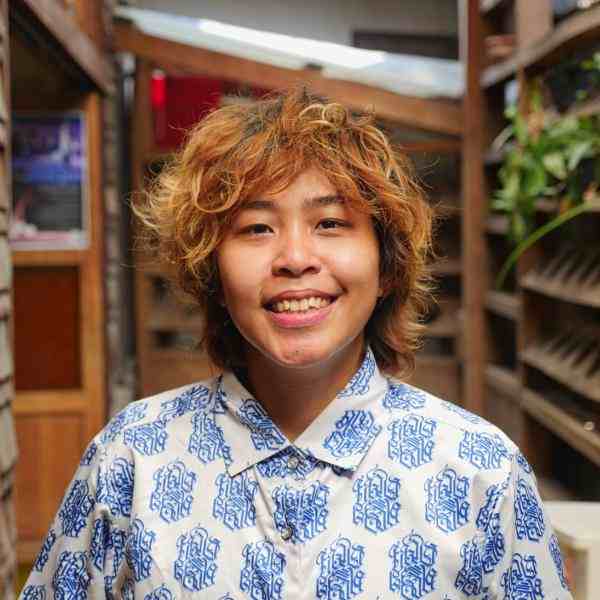
Nawarat Waewployngarm
Problem: Quality of life, livelihood, and food security of urban population. The city development plan comes from the governing body of the city, while the community development plan comes from within local communities-- especially old communities which have histories, local wisdom, and cultural heritage. These communities are slowly being erased and vacated because of gentrification and will eventually disappear from modern maps. The urban community also lacks public spaces where people can connect.
Solution: They are trying to use arts in creative, alternative ways to solve the problem. This group does community arts in order to preserve cultural heritage and revitalize communities through things such as community theatre, community street arts, arts festivals, and many more.
Vision: The local community and local citizens should be included in the city development plan. Additionally, new ways to develop the community should be created while maximizing the benefits generated for the community. The community will then become the model for scaling impact for other communities (Ownership / Partnership/Mindset ).
Motivation: As a local, the problem is evident and right in front of her. She knows that herself, her family, her friends, and her team have the capacity to solve this problem. She is also passionate about arts, the way they operate, and how we can play with problems through arts. Arts give her creative ways to address serious issues, which was the first step that led to her work today.
Koree S. Monteloyola
Founder of Techie Senior Citizens and Retirees Philippines
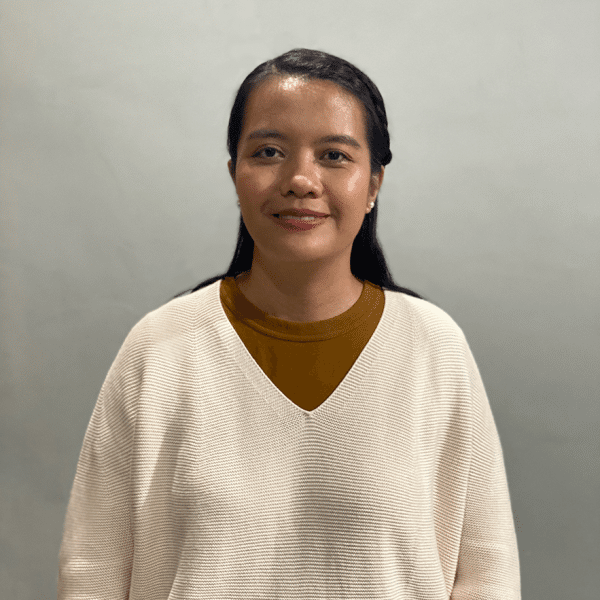
Koree S. Monteloyola
Problem: In the Philippines, the Techie Seniors group is trying to minimize the problem of tech ageism, the proliferation of fake news on the web (coming from the elderly), and improve the elderly's technical skills/digital literacy.
Solution: Before the pandemic, their seminars for the elderly were focused on the basics of using the internet (like turning their phone's mobile data connection on and off so it will not eat at their phone bills, identifying fake news, designing their social media images using Canva, and freelancing). Under the new normal, they have been launching different programs like monthly online seminars called Techie Seniors Thursdays, which continue their discussions and/or tutorials. They also have a website that has an internet usage quiz so seniors can understand their digital literacy level. They recently launched a Learning Management System (LMS) so they can have an online school with short courses on improving their digital literacy skills.
Vision: She is an optimist, but also a realist. She has not yet planned her intentions too far into the future, but for now the feedback, data, and other measurable variables in her initiatives help her to direct and improve programs in Techie Seniors for the foreseeable future.
Motivation: This was supposed to be a one-time seminar for the elderly in 2018 (Proper Internet Usage seminar), but a senior attendee asked when the next seminar would be. She didn't want to let them down, because she knew that there were very few programs for the elderly focusing on this topic; she searched for a sponsor that would help with the next seminar and the rest is history. She wanted to be a part of the Techie Seniors community because it aligned with her values.
Sabrina Gacad
Founder of Lunas Collective
Sabrina Gacad
Problem: Seeking help for gender-based violence and reproductive health/birth control is not the norm in the Philippines. To change this, they are providing women and people of diverse sexuality with an online helpline and care space for related issues.
Solution: Our volunteer-powered online chat, helpline and care spaces provide survivor-centered, feminist care to absolutely anyone who needs it. They teach people to listen with empathy and understanding of unfair gender relations, and to be allies of women and LGBTQIA+ people through having empowering conversations. We also have social media care campaigns to encourage society to celebrate the diversity of sexualities and provide unquestioning support to survivors of GBV. Through learning sessions with different partners (local governments, communities, schools, and private enterprises) we also share these tools so we can all create safe spaces online and in real life.
Vision: She wants to expand helpline operations to at least 6 hours per day to support more people in owning their bodies, sexuality, and safety. She wants to create a social enterprise. She sees Lunas Collective's survivor-centered and feminist care approaches as technology that communities should adopt, as they can provide training and helpline services to others. This year, their partners include local government offices, one major private sector company with over 20 sites across the Philippines, and at least three student organizations. They also have free regular learning and care sessions for the general public. Five years of this work can increase help-seeking behaviors for gender-based violence and reproductive health, while leading qualitative shifts in the norms around sexuality.
Motivation: The incredible women leaders in the Ashoka community, with their privilege, power, and knowledge, can bring new inspiration to her advocacy and amplify its impact. She will thrive and grow in her leadership, and also benefit her community. By sharing her insights and experiences on the innovative application of care and pleasure, she can lead Asian societies in empowering women and people of diverse sexualities to live and love fully.
Michellie Ann Sabando
Founder of TinkerHouse Inc.
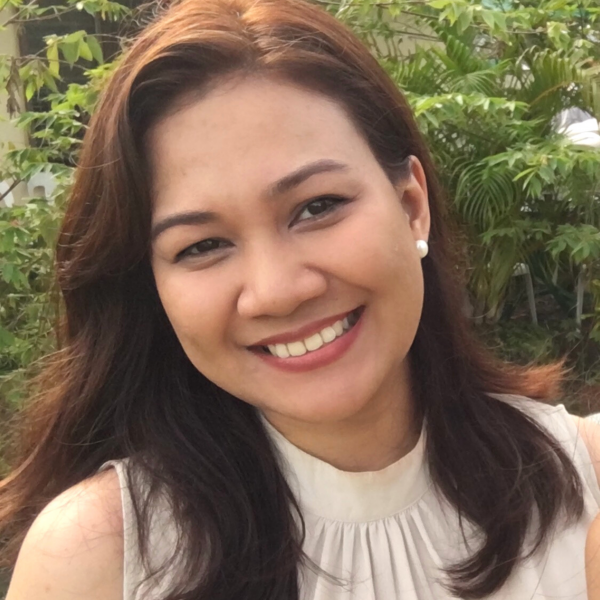
Michellie Ann Sabando
Problem: Hands-on STEAM (Science, Technology, Engineering, Arts & Math) Learning is an integral component of reimagined education for the 21st Century-– it helps develop crucial 21st Century skills such as curiosity, creativity, and critical thinking, especially in young kids. Unfortunately, the majority of Filipino students don't have adequate interest in or access to STEAM Learning due to barriers of cost, time, and geography.
Solution: They're working on creating scalable delivery systems for "sachet" hands-on STEAM learning/tinker projects for young children. By breaking down STEAM into modular tinker projects/activities they're able to make it more affordable, replicable, scalable, and ultimately more accessible to Filipino children across the country. They deliver Tinker Projects nationwide through the following methods: as on-site activities at their company-owned and franchised activity centers nationwide, hands-on learning kits that can be done at home, workshops in partnership with schools and other organizations, at parties and other special events, and now, through online classes and camps. Their approach is simple: they seek to leverage the power of hands-on STEAM learning to help children grow their curiosity, develop their creativity, build their self-confidence, and connect their learning to the real world– giving them strong foundations to grow into 21st century learners.
Vision: Over the long term, they hope to help create a STEAM Learning Ecosystem that can deliver STEAM to at least 5% of the 15 million K-6 children across the country, and then expand regionally. They're working to create online STEAM clubs for kids through their online platform (Tinker Clubs), provide support to help parents/teachers facilitate STEAM learning at home/schools through an expanded catalog of hands-on kits and a digital app (Tinker Ed), and create a network of STEAM facilitators, distributors and franchisees (TinkerNet).
Motivation: As a member of Villgro's WeRise cohort, she's found immense value in connecting and learning from other women on similar journeys. She's learned so much from the program, and being part of it was definitely instrumental in helping them save their company after the pandemic had all but destroyed everything they built over the past few years. Their team is also committed to make impact wherever possible, such as aiming to democratize access to STEAM, developing learning kits and opportunities that enable kids to learn and engage in important issues like climate science, sustainable living, and social justice, procuring from suppliers that work with Yolanda-displaced communities (as we are based in Leyte, and Yolanda survivors ourselves) or persons with disabilities (Tahanang Walang Hagdanan), and helping provide livelihood for home-based moms by specifically targeting them to recruit as TinkerNet members. She wants to join this community because she wants to learn more, and she's sure Ashoka can teach her so much more.
Zhiela Santillan
Founder of Pilipinas Journal
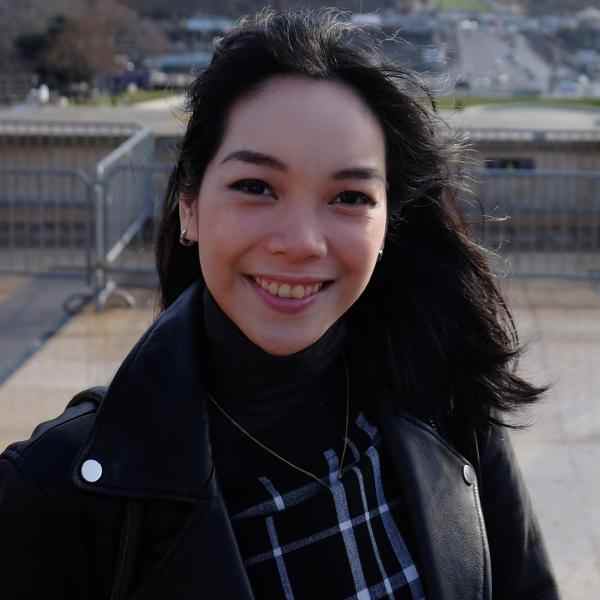
Zhiela Santillan
Problem: Our education system reflects the inequality of our society. For most children in the Philippines, access to quality holistic education remains far from reach. While the wealthy can afford good private schools, most children attend low-quality public and low-cost schools where teachers are poorly trained and class sizes remain beyond the capacity of a single teacher, making it difficult for teachers to meet unique learning needs. The pandemic only widened the education gap further. DepEd estimates that 4 million learners will be out of school this 2021 due to the COVID-19 crisis. This includes many out of school youth who remain unable to access their right to education because they do not have a birth certificate.
Solution: Pilipinas Journal is a Learning Hub and Open Library tending to intersecting challenges using deliberate design, innovation, and localized education. We raise awareness on Philippine knowledge systems, conduct learning experiences, and grant wider access to quality education by providing trainings to non-formal educators who teach out of school youth. Together, we hope to shape a society ready to uphold democratic ideals and values by helping the youth, especially from marginalized backgrounds, understand the meaning and importance of becoming an active member of society.
Vision: To provide excellent and world-class frameworks and workshops to support more Filipinos break from the cycles of oppression and create life-centered and empowering communities where people feel celebrated and supported no matter their background, social class, and identities.
Motivation: By joining this community, she hopes to create more collaborations with other women leaders and help sustain each other's created and desired impact. She's excited to join an amazing community and be able to carry the skills and mindset she gains back with her to the education space, which is ever-evolving to meet the growing demands of our world's most pressing needs. Lastly, she's excited to transfer whatever she learns within and outside her organization through holding workshops and mentoring younger women to be active leaders and citizens of their communities.
Joanna Patricia Matias
Vice President of Partnerships of Edukasyon.ph
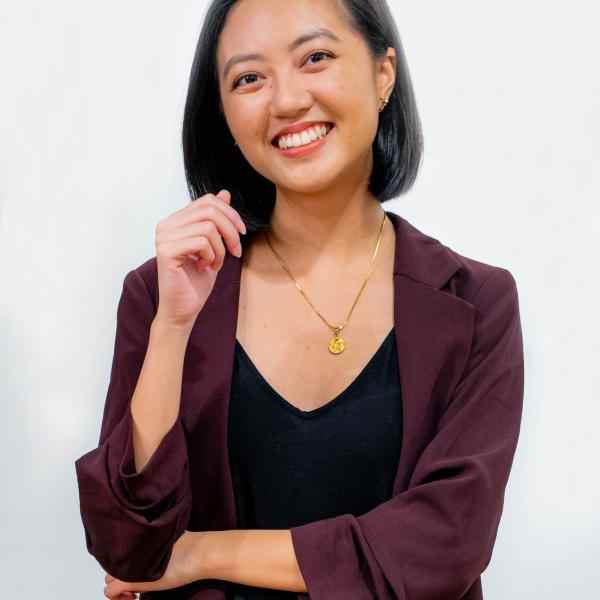
Joanna Patricia Matias
Problem: She was born and raised in the rural province of Nueva Ecija, where she grew up having to travel 2 hours every day to acquire affordable, quality education from a public science high school two towns away from home. Yet she's still one of the lucky ones. Access to education and employment has long been a pervasive issue for Filipino youth. In 2018, 1 out of 5 Filipinos aged 15-24 years old were out-of-school and unemployed (Philippine Statistics Authority 2019). Of those who make it to college, only half will find a job fit for their skills. There is a glaring education affordability and job-skills mismatch in the country, and it poses a huge risk to our youth's future and our country's economic development.
Solution: Edukasyon.ph focuses on connecting students to education opportunities—helping them find the right course, the right school, and the right scholarship. With education affordability as her own personal advocacy, Pat Mat pushed to launch an online scholarship portal during her first month at Edukasyon. A year after its inception, the portal has grown to carry scholarships from over 50 partner scholarship providers and has helped facilitate 1,900 scholarship applications from youth all over the Philippines. To further support education affordability, she's since launched projects, raised funds, and built tech products around a bigger affordability roadmap—financial literacy, technical-vocational education, internships and part-time jobs, and student loans.
Vision: Her ong-term vision for Edukasyon.ph is to lead the shift towards alternative education. Her fervent hope is that by 2030, every Filipino student would have access to some form of tertiary education—be it a 4-year college degree, a 6-month tech-voc course, or a short bootcamp program—that leads to gainful employment. She is currently pushing for a nationwide support program for technical-vocational education. Tech-voc offers a potent solution to the country's job-skills mismatch crisis—it is a cost-effective way to upskill youth, increase their employability, and fill a growing demand for specialized roles in the workforce. She hopes to develop a program to a) destigmatize tech-voc of its misplaced public perception, b) encourage students to take tech-voc courses, c) connect students to the right TVET schools and scholarships, and d) support low-funded TVET institutions through quality training and digital empowerment. She's also looking into specifically tackling gender stereotypes in tech-voc education (e.g. hospitality for girls, welding for boys) to empower girls to take on high-skill tech-voc courses in male-dominated fields.
Motivation: Her joining the program would benefit her small all-women team in understanding the challenges of social entrepreneurship, learning its birthing pains and how to overcome them with minimal risk, and seeing firsthand the industry's best practices and how to replicate them for success. She is keen to meet fellow women entrepreneurs who are hungry to create impact in their home countries. She hopes to network with funding organizations, development sector partners, and technology players, and bring home a wealth of insights and connections that can help propel her organization to deeper, more scalable impact. She hopes to find a strong support system of women entrepreneurs who encounter and overcome the same barriers that she faces. She hopes to be part of a sisterhood that lifts each other up and pays it forward through their work.
Maritess Cruz (Tez)
Founder of Feminist Media Lab
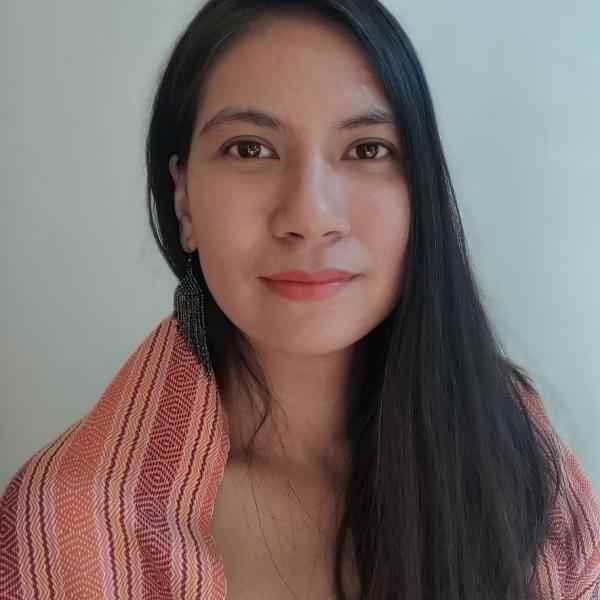
Maritess Cruz (Tez)
Problem: Mass media has become a social institution that fulfills society's need for information, entertainment, and community As a social institution, mainstream media is shaped by and communicates the values of the dominant culture defined by intersecting systems of inequalities, such as heteronormative patriarchy, racism, and capitalism. In other words, mainstream media serves the interests of said system of inequalities and the people that disproportionately benefit from their existence. At the same time, mass media has the potential to be a powerful tool in pushing for the feminist transformative agenda, particularly in feminist critical consciousness-raising and movement building. This is illustrated by movements, campaigns, and communities that have started and thrived in social media such as the #BabaeAko, #metoo, #blacklivesmatter, #HijaAko, EveryWoman, and Bantay Bastos. In addition, digital media technologies have allowed feminist organizing to transcend time and space by going online. Feminist Media Lab, or FemMe Lab, seeks to further push media's potential in movement building by nurturing a network of political and media-savvy feminists who will be at the forefront of the feminist movement's counter-cultural force.
Solution: FemMe Lab is a media advocacy hub and an innovation lab that seeks to promote feminism and support the Philippine feminist movement through popular culture, youth engagement, and community building. These objectives are being met through three programs: 1. Feminist Media School-- The Lab develops and implements courses that could help organizations leverage media to advance their feminist agenda such as the Sexual and Reproductive Health and Rights and Feminist Media 101 module for the SHE Project under UP Center for Women's Studies Foundation and OXFAM Pilipinas. They also have an internship program where they accept and train media and communication students on the principles of feminist media and its application in their respective fields. The interns work with them on various advocacy projects. 2. Feminist Media Studio-- The Lab collaborates with other organizations to produce media products with a feminist lens including Chikang Bayi, a monthly feminist podcast co-produced with Angat Bayi. They also provided consultancy services for the FamiLigtas and #DearSurvivor campaigns in partnership with Lunas Collective. 3. Feminist Media Community-- The Lab cultivates a Community of Practice comprised of feminists, media professionals, and development workers. Through this community, learnings, and insights from doing media for feminism and making media feminist are explored and promoted.
Vision: In the years to come, they hope to expand the work that they are currently doing. For the internship program, they hope to increase the number of interns by increments of five each year. As a complementary project, they want to hold Feminist Media Caravan to different schools with media and communication courses that will give short lectures on feminist media, and advocate for the integration of gender in their curriculum. For Chikang Bayi, they plan to get "field reporters" in different sectors and localities that will decentralize the information flow and provide diversity in the stories and media products that we produce. The goal is to have collectives of feminist storytellers from the three (3) island groups of the country with the goal of empowering women and non-binary individuals to tell their own stories and break gender stereotypes. They also want to start organizing and help launch young feminist collectives in different media fields such as journalism, film, and advertising. With this, the goal is to promote gender issues for people who have access to mainstream media platforms.
Motivation: After our initial testing for Feminist Media Lab, she feels that she's ready to be taken to the next level. However, she recognizes that she lacks skills and knowledge that would minimize the guesswork in what she is trying to do. She also lacks the resources and ideas that will allow her to expand Feminist Media Studio's services to a level that would allow them to be entirely independent of the need for outside funding. By joining this community, she hopes to get tools and linkages that will allow her to expand our operations, advocacy, and impact.
Audrey M. Tangonan
Managing Director and Founder of Sinaya Cup
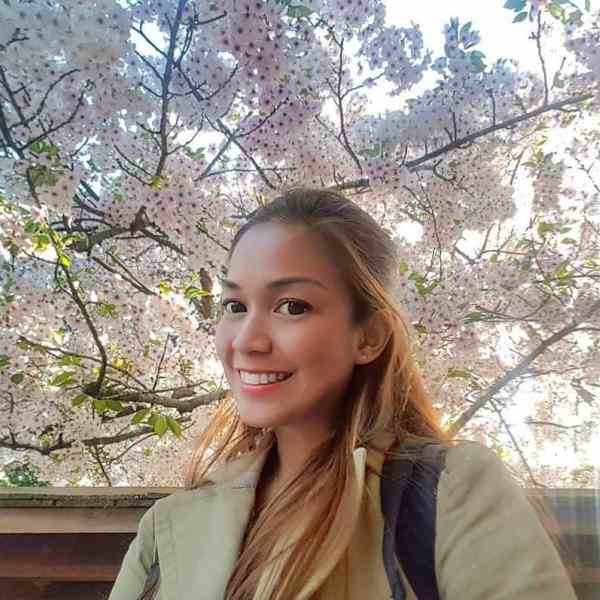
Audrey M. Tangonan
Problem: Menstrual and Reproductive Health status and education in the Philippines is poor.
Solution: She and her team created the first Filipino brand for menstrual cup, a reusable alternative to disposable plastic napkins. Two years ago, they launched the buy-one-teach-one program: for every cup they sell, it funds a high-school girl's attendance to one out four sessions to their Menstrual and Reproductive Health program called the CUPacity Caravan. They are using experiential learning and motivational techniques in teaching these taboo topics. The aim of the program is to help the students make better decisions for their menstrual management (by using Sinaya Cup), to help motivate them to make better decisions about their sexual choices, to encourage them to seek medical guidance for different reproductive symptoms, and to be empowered young women.
Vision: To convert 200,000 women to the Sinaya Cup and 1,000,000 women in 10 years. That will be over 100,000,000 plastic napkins made obsolete, lessening the environmental impact. They envision the CUPacity Caravan to be implemented in the curriculum of the Philippines as the method of teaching menstrual and reproductive health.
Motivation: Having to experience her older two sisters' unplanned pregnancies. One sister was only 16 and the other was 22. She loves her nephews, but early motherhood greatly affected her sisters' financial capacities and careers. It was hard for her family to raise their nephews while most of her siblings were still in school. Her parents both had good jobs, so they did okay financially. "I know the impact on lower income families of teenage pregnancies' has more devastating impacts, socially, financially, and mentally. That's why I know our program was worth pursuing."
Mary France Yvonne Manalo
Co-Founder of Tagani Inc.
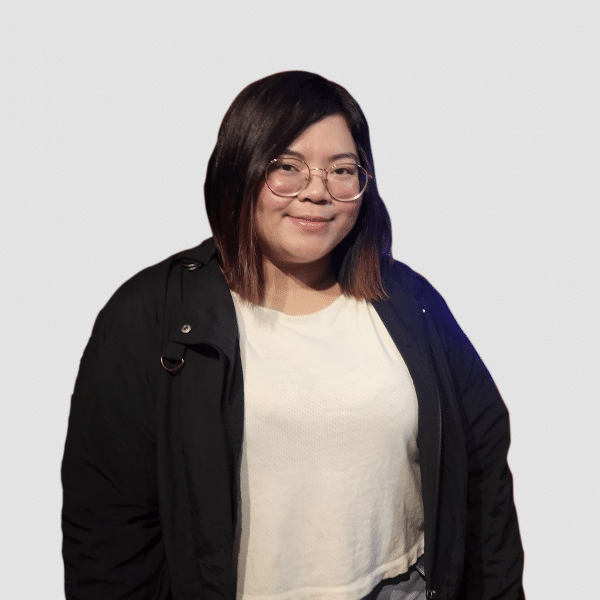
Mary France Yvonne Manalo
Problem: Despite being an agricultural country, 2 in 3 farming families are in poverty. With 1/3 of the population employed in agriculture, the population is at risk if the the agriculture sector only grows at 5% annually — this makes agriculture less attractive for most people despite its importance to the economy.
Solution: As an edutech platform, Tagani enables people to invest in agribusiness through online classes on food and agribusiness for entrepreneurs, equipping farmers and aspiring agribusinessmen with business and digital skills. By teaching agribusiness entrepreneurs and farmers on digital agriculture, such as by using artificial intelligence and machine learning, they can help them make better decisions towards uplifting the industry as a whole.
Vision: To successfully incubate and accelerate at least 100 hectares of land by adding 50% value over land area through inclusive models of agribusiness.
Motivation: She's witnessed first-hand how her father started a chicken farm and faced challenges because of the lack of forecasting of expenses prior to the actual earnings from the maturity of the chickens. She realized then that there would also be similar stories of people having saved up enough to start their own agribusinesses and reach full operations, but lacking foresight of possible extra expenses to still be incurred prior to the sellable period of the business, hence the possibility of ceasing operations due to the lack of funds; this can be addressed through education.
Sarah Jane Fabito
Chapter Head of Wi Tech Batangas
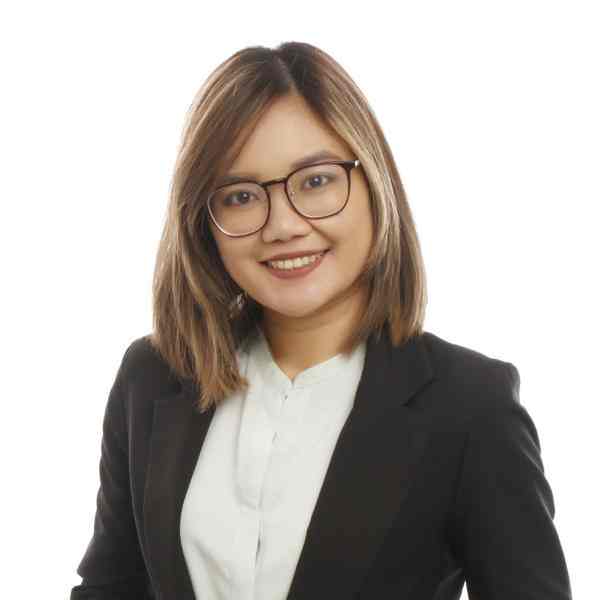
Sarah Jane Fabito
Problem: Statistics shows that there is an underrepresentation of women in the workplace. In fact, only 18% of startup founders are female in the Philippines. That’s almost one out of five founders. Women only make up 27-47% of workers in the tech industry (Statistica). There also exists a pay gap and discrimination in the workplace among female workers. Hence, their main goal is to educate, inspire, and empower Batangueño women and youth to break gender barriers and discrimination in technology. They aim to provide them with opportunities to discover themselves in tech and to create a safe, supportive, and inclusive space for the community.
Solution: In line with the work of empowerment that WiTech does, WiTech aims to achieve its goals through sustainable outreach. WiTech recognizes the enormous potential that technology has to make a difference in society. In order to advocate for true gender and societal equality, there's a need to be able to provide all Filipino youth with the tools necessary for them to simply enter or consider tech as a viable field. Recognizing the importance of technology as the world battles the global pandemic brought by COVID-19, WiTech brings Wi-Teach to Batangas Province. The Wi-Teach Program is hopeful to address both the academic and non-academic needs of students in Batangas province through Wi-Teach Tutorials (academic) and Wi-Teach Bootcamp (non-academic).
Vision: She hopes that WiTech Batangas can impact the lives of at least 10,000 students and teachers, especially young girls and women. She envisions the organization to create positive and meaningful change in the lives of young girls and women throughout their programs while making a sustainable profit in the future.
Motivation: Batangas was the hardest hit area when Taal Volcano erupted on January 12, 2020, two weeks before the declaration of COVID19 outbreak. The eruption affected more than 800 schools with around 2.4 million learners from the CALABARZON region. The aftermath of Taal eruption and the declaration of global pandemic has made Batangas province as the most at-risk populations in the world, according to Relief International. These two consecutive events have disrupted schools in the province leaving affected students, especially those who lost their homes and those in the marginalized areas behind in learning.
Cheng Juin Ling (Angeline)
Founder of SheASK
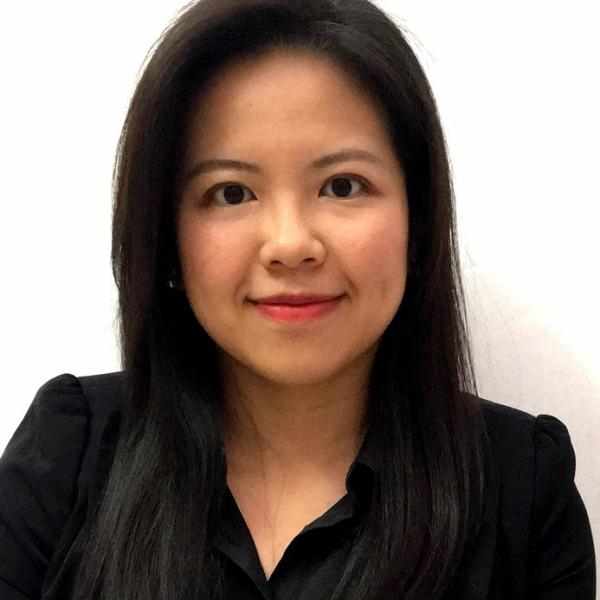
Cheng Juin Ling (Angeline)
Problem: In general, the problem is a lack of skills and knowledge. Especially after the fourth industrial revolution and COVID-19 happened, many corporations are transforming and digitizing. Male-dominated field like STEM (Science, Technology, Engineering and Mathematics) is lacking female talent, while many administrative and marketing positions that were mostly female-dominated were retrenched and replaced by technology. Other skills such as financial management, emotional management, and other technical/soft skills are also important for women to equip while facing all sorts of challenges during and after the pandemic.
Solution:
Stage 1 - Create a platform (website and mobile application) with four main sections for a women-supporting-women community. Section 1: Skills trading (skill sharing/skill exchange), where platform users can trade skills with skills or with the points collected in the platform. The purpose of point collection is to encourage women to learn and to share. Women also can discuss about the skills and knowledge in the forum. Section 2: Supporting Women Businesses, where female business owners can showcase their products/ services on the platform and platform users can support female-owned business by buying or subscribing to the products/services. Section 3: Job board, where female business owners can hire female employees (full-time, part-time, intern, volunteer) and platform users can apply for jobs from the job board as well. Section 4: Women Helpline, where platform users can easily find the consolidated Helpline and get help in Asia any time anywhere.
Stage 2 - Collaborate with universities and workshops in SEA region to provide online courses (fee applicable but financial aid available).
Stage 3 - Use AI technology to improve skills learning. Meanwhile, they are increasing the awareness of gender equality and female empowerment through all marketing activities, including campaigns that recognize women's effort (especially unpaid care work and informal work).
Vision: The intended social impact of SheASK is to empower at least 10,000 women primarily in SEA countries with skills and knowledge to have independent income (by securing a job, getting a higher salary, starting a new business). The long-term intended social impact is for most of the SEA countries to score at least 0.8 in the Global Gender Gap Index.
Motivation: She wants to be a voice of this community to help increase the awareness of gender equality and women empowerment, support women, and reduce other kinds of inequalities in the society such as class-based and racial discrimination.
Saniah Abu Yamin
Founder of Pertubuhan Kebajikan Sukarelawan Dan Bencana Malaysia
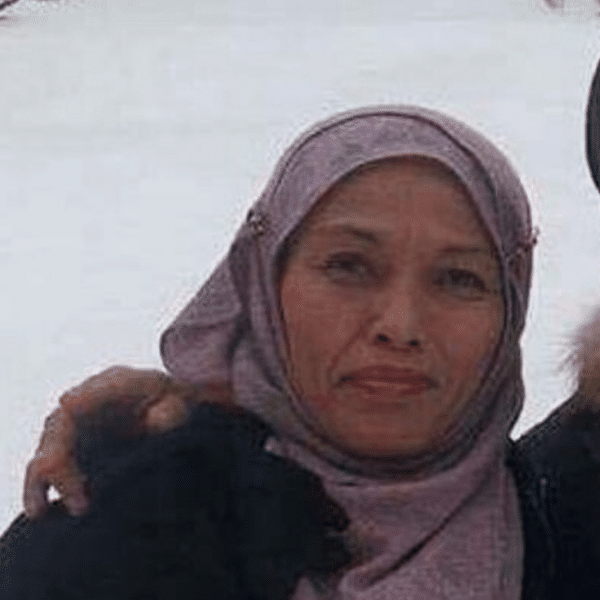
Saniah Abu Yamin
Problem: Poverty is her top priority. About 80 % of the families which received humanitarian aid from her are from the lower income group. They have disabled child in the family, are senior citizens with chronic ailments (e.g. paralyzed), are single mothers with big families to support, are married couple with many children in school, etc.
Solution: Did a survey and house visit, collected data, and identified their problem. There are several stages of aid that they could provide:
1. Short-term solution - hand out food, baby diapers, baby formula, etc.
2. Program to create an additional income
3. Source out jobs for their family members
4. Provide a volunteer daycare for children of the single mothers so they can work.
5. Develop their skills or capabilities
Vision: She intends to build a community center. This will be the one stop center for things like:
1. Providing emergency rations of food for the needy
2. Having a dormitory unit to provide temporary shelter for runaway children, single mothers, and babies
3. Providing free tuition for children and illiterate adults
4. Developing arts of weaving puah kumbu and mats in sarawak
5. Developing day care center for babies and children
6. Being a one-stop shop with internet, pc, printer
7. Forming team of caring neighbours to follow up on senior citizens with chronic ailments
8. Developing a native land in agro-tourism and eco-tourism (using organic method )
9. Organizing careers for school dropouts
10. Introducing a system whereby kitchen waste is turn into feritliser (right now, the people living in the long house of sg. Naman in sibu are dumping their kitchen waste into the small stream or burning them, which will pollute the water system)
Motivation: She wants to contribute to the community. She has been the victim and does not want others to go through that. She feels a great satisfaction in doing good deeds for others. She wants to share happiness and prosperity to make this world a better place to live in.
Dr. Priadarshni
Founder of Jujucare Medic
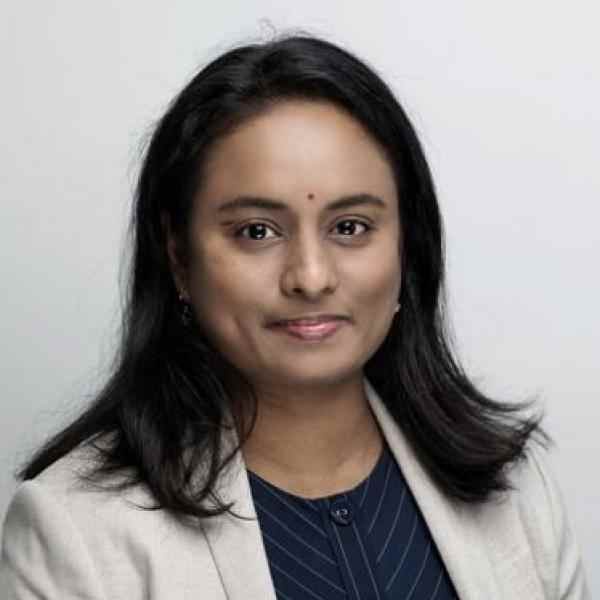
Dr. Priadarshni
Problem: Children in Malaysia are facing various malnutrition issues, such as being underweight or obese with inadequate intake of vitamins and minerals. According to a national statistic in 2019, one out of five children under the age of five were stunted. Among those under the age of 18, one out of three were obese, which is one of the highest child obesity rates in Asia. JUJUCARE MEDIC seeks to promote child and adolescent wellbeing through preventive care.
Solution: Development and delivery of models for preventive care services shall remain relevant to address the current issues and challenges in Malaysia. They strengthen healthcare services for children and adolescents through the Doctors@School initiative, which is a process of early detection and intervention. With their qualified health professional team, they provide in-house care like general health screening, emotional wellbeing, and nutritional assessment for preschoolers. Various health campaigns are rolled out together with their strategic partners to address the increasing double burden of non-communicable and communicable diseases for targeted intervention among the marginalized community. Prevention and control of diabetes mellitus, hypertension, coronary heart disease, and common complications of non-communicable diseases is given emphasis, aligning with the country's national health framework. They empower local communities, especially those who find difficulties in accessing medical care, with their health social entrepreneur program. With this solution, healthcare volunteers engage in health advocacy to further decentralize the healthcare system and help in promoting good health through community mobility.
Vision: They aspire to have preventive healthcare community clinics set up in low socio-economic areas, which could address modifiable health risks as Malaysia’s prevalence of non-communicable disease is increasing. This could potentially reduce the financial burden of marginalized communities while they could invest further in developing their skills. We hope to impact 10,000 lives in our 5-10 year target milestone. This includes programs on increasing awareness , changing attitudes (e.g. reducing stigma towards children with disabilities), and increasing knowledge (e.g. informing about the implications of smoking in breastfeeding mothers).
Motivation: They believe that when you pair passionate and innovative people from different sectors, great things happen. This is why they place a high value in their partnerships with organizations that share their passion and who enable them to maximize their impact in changing the lives of the underserved community for a greater good. Distinguished foundations like Ashoka can certainly add value to help them amplify their social impact. Continue spreading the mission of social goodness through care!
Anjali Prabhu
Founder of Asia Family First
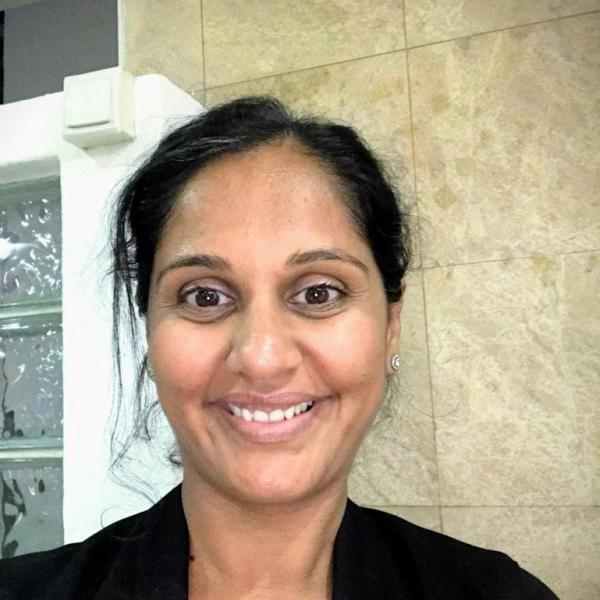
Anjali Prabhu
Problem: Currently there is limited social work/social care workforce capacity in the region despite much excellent work being undertaken by ground-up/civil society organisations involved in alternative care. 'Alternative care' is any arrangement, formal or informal, temporary or permanent, for a child who is living away from their parents, e.g. foster care, kinship care, adoption. They seek to mobilise and strengthen the social work/care workforce and Changemakers within the region through knowledge exchange and capacity building. This is aimed at providing more comprehensive, collaborative, targeted, and contextualised alternative care services that will lead to better outcomes for children and families in this region. Their particular focus is on the most marginalised communities in which children become separated from their families, including but not limited to undocumented and stateless minors.
Solution: Asia Family First endeavors to continue efforts (formally and informally) to provide a platform to share knowledge and develop/arrange workshops, seminars, and other regional inter-agency collaborative efforts to showcase best practices in the region. The overall aim is to identify, link, and establish a network of social care practitioners and policy makers within this region that is able to comment and provide insights into the needs and frameworks required to ensure better long term care outcomes for children and communities.
Vision: That a regional network of practitioners is established and managed locally, and that this is used by policy makers nationally, regionally, and internationally to inform relevant care policies. Children in care and those who leave care within the region should have a voice in policy that affects them. A localized body of research on alternative care should be established and sustained.
Motivation: Asia Family First hopes to be a part of something that strengthens the regional social care workforce and creates systemic impact improving the long-term care outcomes for marginalised children and communities.
Velda Wong
Founder of Conversations Without Borders
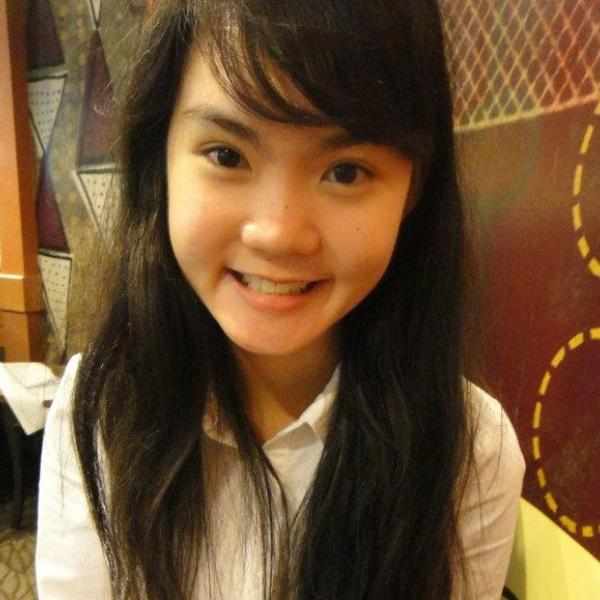
Velda Wong
Problem: Stigma and discrimination faced by people with mental health conditions, as well as lack of understanding, support, and sufficient care for people with mental health conditions and their caregivers.
Solution:
1. Providing physical/virtual monthly support groups to people with mental health conditions and their caregivers.
2. Conduct outreach efforts to raise awareness and educate the public about mental wellness and wellbeing.
3. Partner with other mental health service providers to create events and initiatives (such as film screening on the theme of mental health, human libraries) to normalise mental health talks/conversations, increase mindshare, and share knowledge in the larger mental health ecosystem.
Vision:
1. To be able to provide employment to people with mental health condition by creating sustainable social enterprises and create a mentoring structure for people with mental health conditions for them to share their experiences with others in recovery.
2. To contribute to the larger SDG goals.
3. To build a large community of people with mental health conditions who are in recovery, able to showcase their work (art pieces, music, hard skills, services, and products), and contribute their skills and talents to better society and be ambassadors for people with mental health conditions in recovery.
Motivation: Personal friends and family members being diagnosed with mental health conditions, going through a tough time during the process of recovery (getting warded, in and out of the mental health institutions, adhering to programmes like Early Psychosis Intervention Programme, follow-up visits to the psychiatrists, etc.), and not being able to integrate to society because of the stigma and discrimination faced as someone with a mental health condition. She wants to gain new knowledge and insights, network, and learn new skills to grow her initiative.
Huyen Nguyen
Founder of EVOL Vietnam
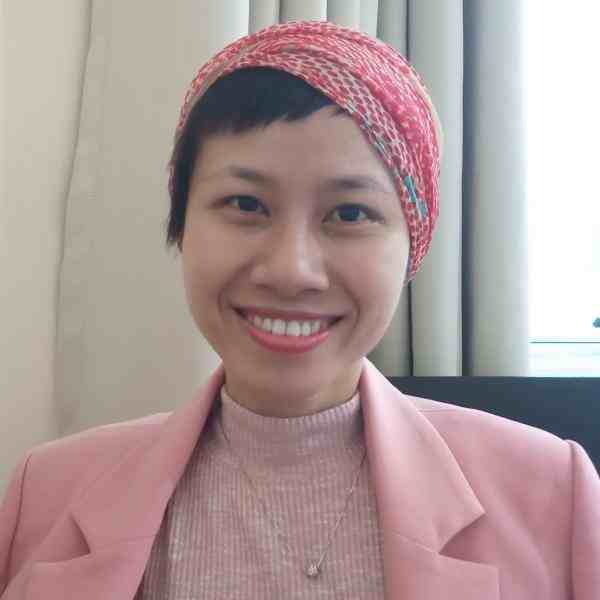
Huyen Nguyen
Problem: Vietnam is grappling with several environmental issues and marine debris is one of the most critical. The country has a coastline of 3,260 km and a lot of tourist attractions. At those places, plastic waste is overwhelming and many waste treatment plants are overloaded. Burying is the only way to handle the excessive solid-waste, and the local government is still working towards effective solutions to deal with the problems. Every year, the country dumps around 300,000-700,000 tons of plastic into the ocean, which makes it become the world's fourth-largest polluter after China, Indonesia, and the Philippines. To make matters worse, only 10-15 % of collected waste in the country is reused or recycled. Due to the mentioned problems, EVOL has decided to run an educational project on encouraging the locals to reduce single-use plastics by making Eco-Bricks, called “One Person, One Eco-Brick”. The aims of the project are to foster local awareness of marine pollution, to enrich local understanding of alternative ways to recycle single-use plastic, to reduce single-use plastic into the ocean, and to strengthen youth engagement in global issues. The organization targets that by 2025, 90% of single-use plastic waste in Vietnam is recycled and reused.
Solution: EVOL Vietnam is a well-developed social enterprise in fostering and heightening public awareness about marine debris. Since its founding in 2018, the organization has built up a network of 14 partners, including Ba Ria Vung Tau University, Women Empowerment Club, Seaside Sustainability, Sai Gon University and more. With the support of the local government and its domestic as well as international partners, EVOL has carried out many successful projects, namely Hearth, Eco-bricks, and Global Navigators. The focuses of those projects lie in reducing single-use plastic into the ocean and strengthening youth engagement in tackling environmental issues. With a widespread network of passionate local and international volunteers, as well as a rising reputation after series of successes, EVOL continues to grow dramatically and creates beneficial impacts on the local community. While working on those projects, EVOL efficiently carried out 8 workshops on Eco-Bricks. The two projects have attracted more than 4,500 participants and have converted almost 900 kg of single-use plastic into reusable material, which is equivalent to 4,300 Eco-Bricks.
Vision: They plan to spread this initiative into more provinces in Vietnam and other countries in the ASEAN region since 5 of 6 countries that contributed over 60 percent of single-use plastic into the ocean are from this region. Besides, cooperating with other countries will strengthen and make their network stronger and create more impact in the regional level.
Motivation: She is interested in environmental sustainability, especially in the plastic waste issue. Her master's major is also about this field. Furthermore, she has almost 10 years of experience in the development sector-- sustainability in particular. She has applied her knowledge, skills, and network in this field with the purpose of creating an impact in the community and the world we are living in.
Tram Anh Pham
Founder of The Good Human
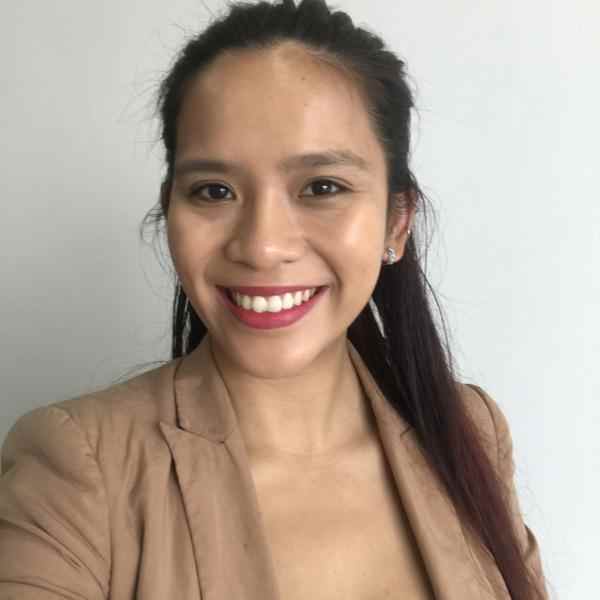
Tram Anh Pham
Problem: The key root of the problem that she wants to solve is the low social and environmental awareness of people in developing countries like Vietnam. She strongly believes that once the whole community has a better understanding and awareness about the life around them, more and more solutions and actions with positive impacts will be generated. Related to the projects that she is working on, a social kitchen and an up-cycling project, she is trying to achieve SDG Goal 1 (No Poverty - end poverty by providing job opportunities and necessary skills), Goal 8 (Decent work and Economic growth - promote a sustained economic growth by providing skillsets to increase productivity, innovation and entrepreneurship), Goal 10 (Reduced inequalities - provide the same career opportunities for everyone regardless their sex, ability, education level, origin and religion), Goal 11 (Sustainable Cities and Communities - support positive economic, social and environmental links in all activities in the local community), Goal 12 (Responsible Consumption and Production - reduce ecological footprint by changing the way Vietnamese produce and consume goods and resources) and Goal 13 (Climate action - create urgent action to combat climate change and its impacts).
Solution: Currently, she is working on 2 projects, one is a social enterprise and one is a non-profit project. The former is called The Good Kitchen, a social kitchen that provides free professional baking and life skills training for people with disadvantaged backgrounds (victims of human trafficking and domestic violence, disabled peopled, homeless children, etc.). The latter is called The Good Plastic, a non-profit upcycling project that transforms plastic waste into valuable products for donation to people in need. In both projects, the community is encouraged to deeply participate in various workshops, activities and events, so that more positive impacts will be generated in the long run. She wants to slowly but effectively change the mindset of the whole community about those serious social problems, so that they can contribute to a better world step by step.
Vision: With her greatest dedication and passion in these projects, she aims to generate significant social impacts. First, The Good Kitchen expects to recruit at least 60 apprentices a year, with a 30% growth rate a year, and train them with necessary technical and life skills for a successful future as a baker or a business owner. The reason why they choose baking skills specifically is that bread is a daily product, and the investment for a bakery is significantly lower than a restaurant, hence graduates can go back to their hometowns and generate more positive impacts. Through monthly workshops and events, the community is expected to change their mindset significantly and create more jobs for people with difficulties. Secondly, the long-term plan for The Good Plastic is to upcycle at least 2,000 kg of plastic monthly to produce not only small products but also bigger projects like free playgrounds for kids and free community facilities (benches, tables, bins, etc.).
Motivation: By joining the community, she will increase her networks with other inspiring like-minded women working hard to create a better world for others. She believes she can learn greatly from their experiences, knowledge, and personal stories, which are all valuable lessons. Moreover, the programme will also equip her with necessary frameworks, learning tools, and innovative ideas to help her manage the business, hence maximising positive impacts on the society. She truly looks forward to all memorable experiences and wonderful friendships in this energetic community.
